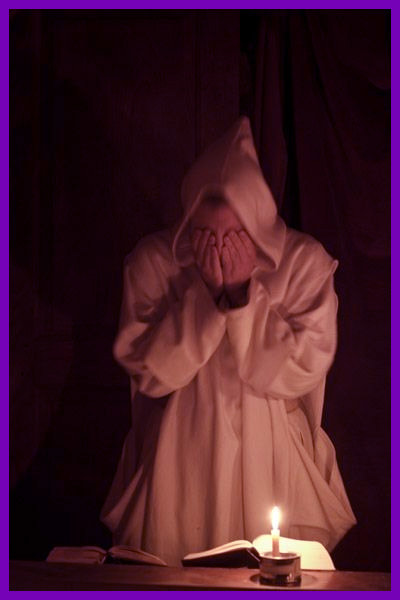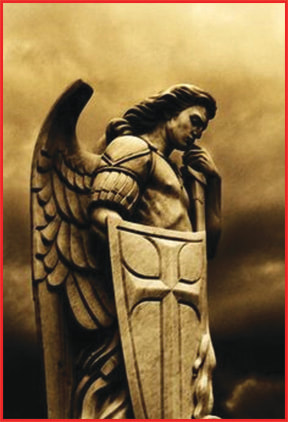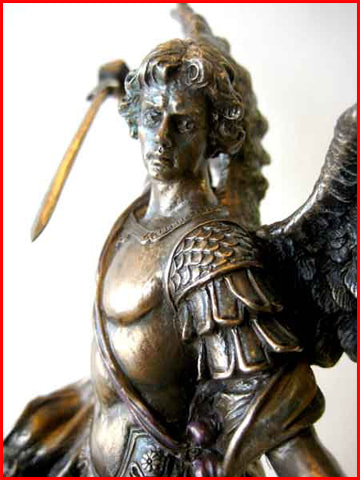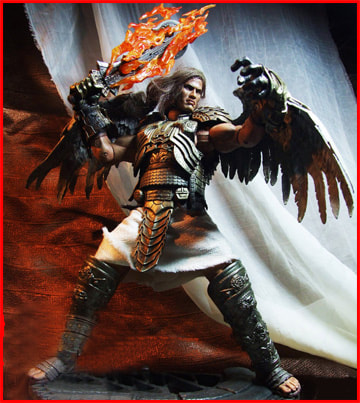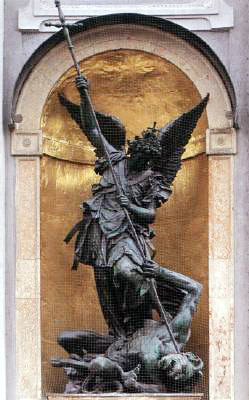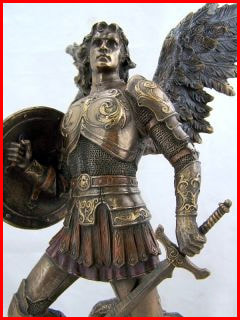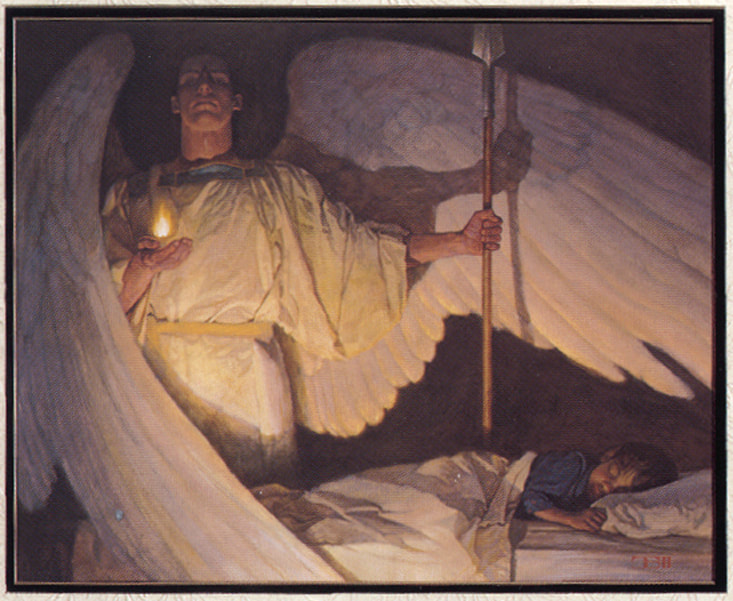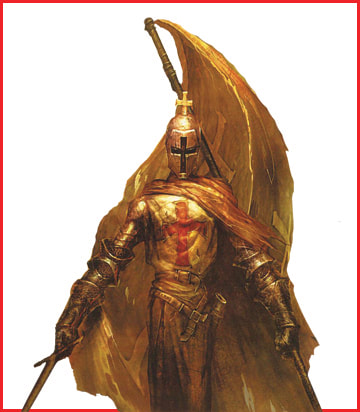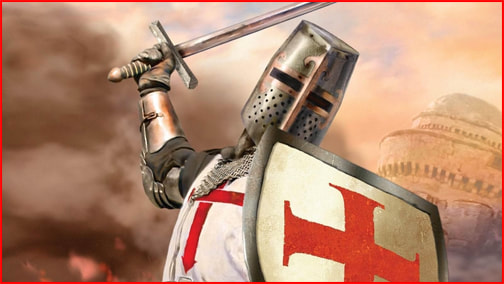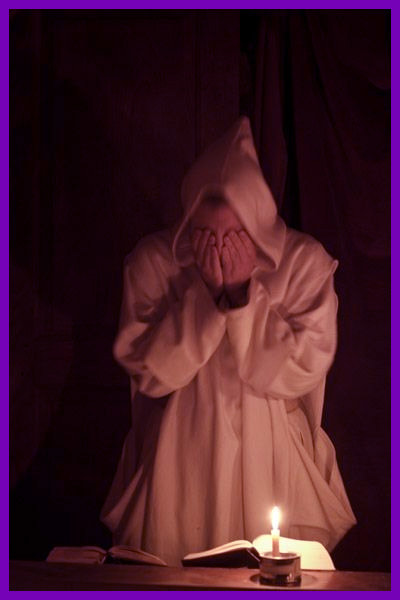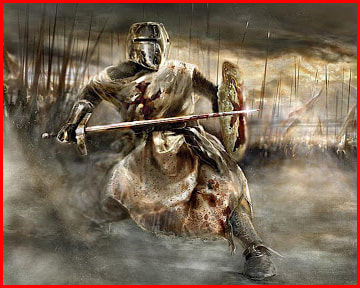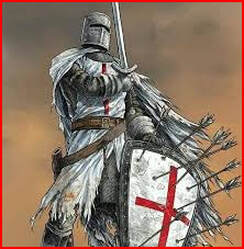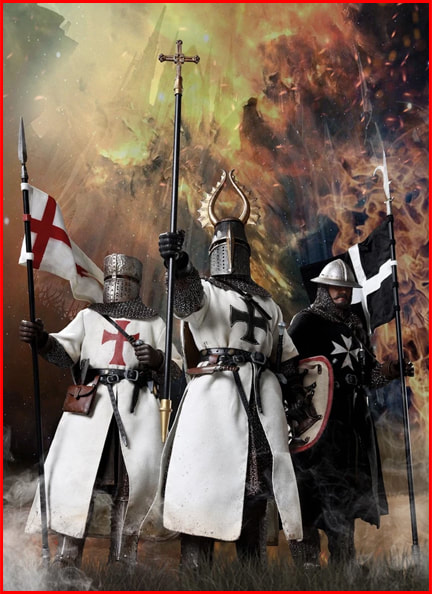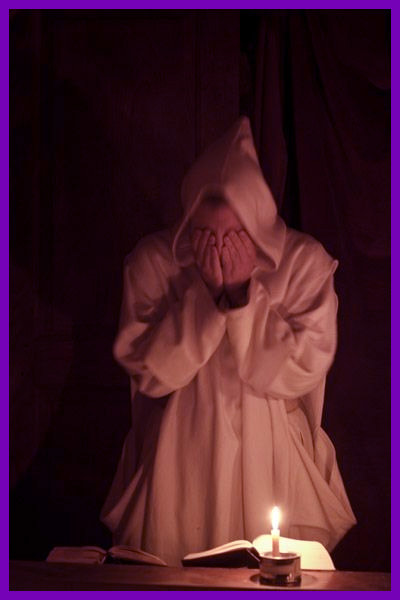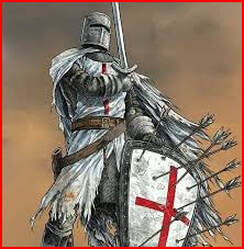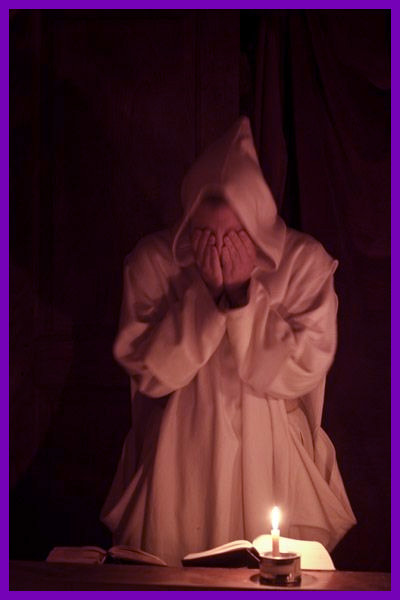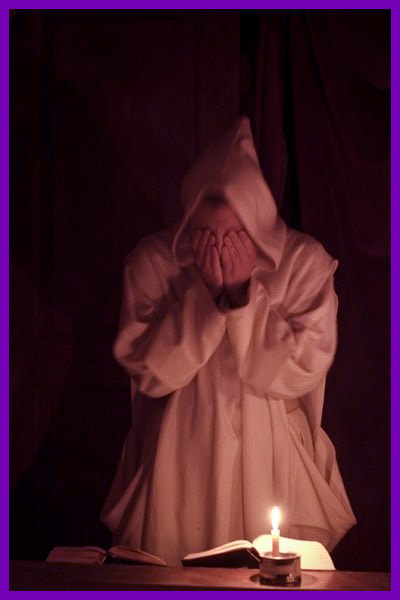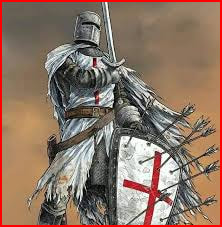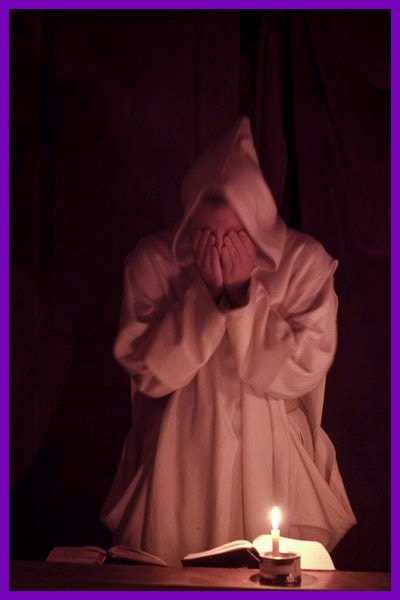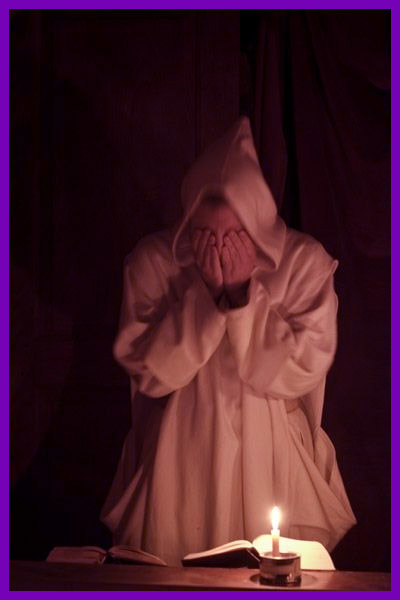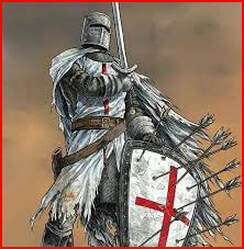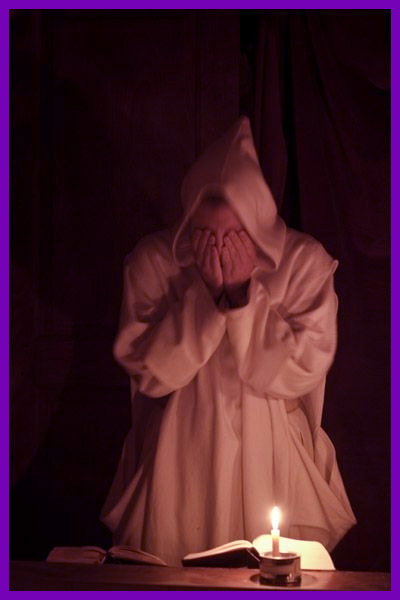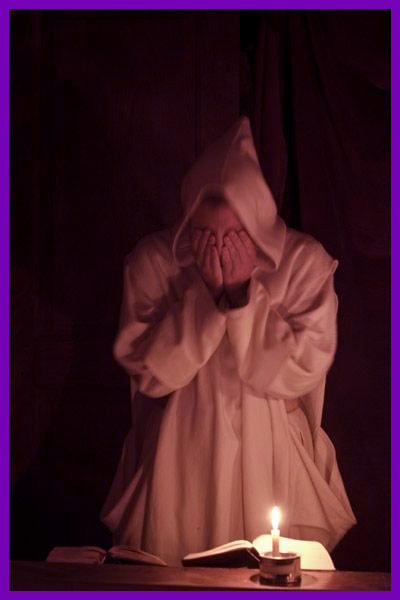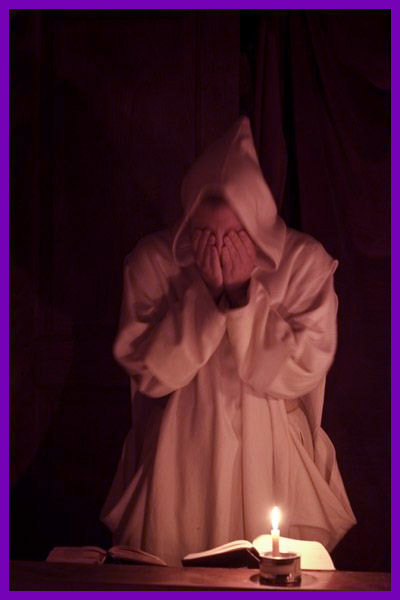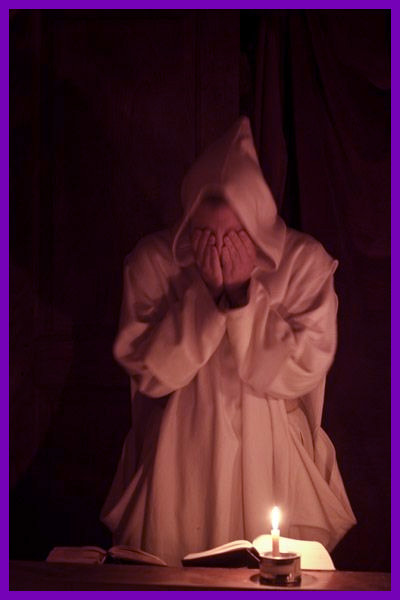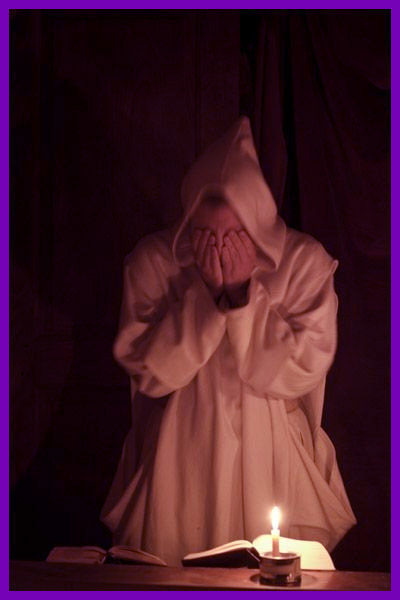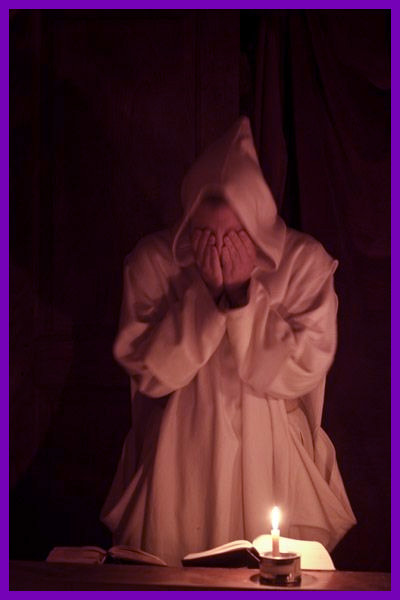| Devotion to Our Lady |
|
- Homepage
-
Daily Thoughts
- 2023 October Daily Thoughts
- Daily Thoughts Lent 2020
- Daily Thoughts for Advent 2019
- Daily Thoughts for October 2019
- Daily Thoughts for September 2019
- Daily Thoughts for August 2019
- Daily Thoughts for July
- Daily Thoughts for June
- Daily Thoughts for Easter 2019
- Daily Thoughts for Lent 2019
- Daily Thoughts for Christmas
- Daily Thoughts Easter 2022
- Sacred Heart
- Holy Ghost
-
Spiritual Life
- Holy Mass Explained
- First Friday Devotions
- First Saturday Devotions
- The Mercy of God
- Vocations
- The Path Everyone Must Walk >
- Gift of Failure
- Halloween or Hell-O-Ween?
- Ignatian Spiritual Exercises >
- Meditation is Soul-Saving
- Spiritual Communion
- Miraculous Medal
- Enrollment in Miraculous Medal
- St. Benedict Medal
- Holy Water
- Advice on Prayer
- Your Daily Mary
-
Prayers
- September Devotions
- Seven Sorrows of Our Lady
-
Novenas
>
- NV-Help of Christians
- NV-Nativity of Our Lady
- NV-Seven Sorrows
- NV- Sorrowful Heart
- NV-Pope St Pius X
- NV-La Salette
- NV-St Michael Archangel
- NV-Immaculate Heart
- NV-Assumption
- NV-Novena for Fathers
- NV-Novena for Your Mother
- NV-St Raphael Archangel
- NV-Souls in Purgatory
- NV-All Saints Day
- NV-Christ the King
- NV-Divine Motherhood
- NV-Guardian Angels
- NV-Rosary
- NV-Mirac Med
- NV- Imm Conc
- NV - Guadalupe
- NV - Nativity of Jesus
- NV-Epiphany
- NV-OL Good Success
- NV-Lourdes
- NV-St Patrick
- NV-St Joseph
- NV-Annunciation
- NV-St Louis de Montfort
- NV-OL Good Counsel
- NV-Last Supper
- NV-Passion
- NV-Pentecost
- NV-Ascension
- NV-Sacred Heart
- NV-Sacred Heart & Perpetual Help
- NV-Corpus Christi
- NV-OL of Perpetual Help
- NV-Queenship BVM
- NV-OL of Mount Carmel
- NV-St Mary Magdalen
- NV- Im Hrt
- August Devotions to IHM
- Immaculate Heart of Mary
- Litany of Dependence
- Prayers to St Mary Magdalen
- Prayers in Times of Sickness Disease & Danger
- Holy Souls in Purgatory
- Meditations on the Litany of Our Lady
- Special Feast Days
- Prayers to Mary (Mon-Sun)
- Litanies to Our Lady >
- Various & Special Needs
- Our Lady of the Rosary
- Our Lady of Mt. Carmel
- Our Lady of Perpetual Help
- Our Lady of Guadalupe
- Other titles of Our Lady
-
Rosary
- Downloads
- Consecration
- Easter Season
-
Holy Week
- Last Seven Words of Jesus >
- Characters of Passion >
- The Last Days of Christ
- Before Palm Sunday
- Palm Sunday
- Monday in Holy Week
- Tuesday in Holy Week
- Wednesday in Holy Week
- Holy Thursday (Last Supper)
- Holy Thursday (Agony & Arrest)
- Night Vigil with Christ
- Good Friday (Pilate & Herod)
- Good Friday (Way of Cross & Crucifixion)
- Saturday in Holy Week
-
Lent
- Ideas for Lent
- Daily Lenten Planner
- Daily Lenten Liturgy
- From Cold to Hot
- Lent with Aquinas
- Lent with Dom Gueranger
- Virtues for Lent
- History of Penance
- How Expensive is Sin?
- Confession of Sins
- Letter to Friends of the Cross
- Sermons for Lent
- Stations of the Cross >
- Lenten Prayers
- 7 Penitential Psalms
- Lenten Psalms SUN
- Lenten Psalms MON
- Lenten Psalms TUE
- Lenten Psalms WED
- Lenten Psalms THU
- Lenten Psalms FRI
- Lenten Psalms SAT
- Lenten Laughs
- Septuagesima
-
Christmas
- Epiphany Explained
- Suggestions for Christmas
- Food For Thought
- Christmas with Aquinas
- Christmas with Dom Gueranger
- Christmas Prayers
- Candles & Candlemas
- Christmas Sermons
- Christmas Prayers SUN
- Christmas Prayers MON
- Christmas Prayers TUE
- Christmas Prayers WED
- Christmas Prayers THU
- Christmas Prayers FRI
- Christmas Prayers SAT
- Twelve Days of Christmas >
-
Advent Journey
- Purgatory
- Christ the King
- Legion of Mary
- Scapular
-
Saints
-
Martyrs for the Faith
>
- Your Daily Martyr >
- All 365 Days of Martyrs
- Cristeros
- St Valentine & Valentine's Day
- Martyrs--Thomas Becket
- Martyrs--John the Apostle
- Holy Machabees
- Age of Martyrdom
- Carmelites of Compiegne
- Martyrs--Peter & Paul
- Martyrs--John the Baptist
- Martyrs--Andrew
- Martyrs--James the Great
- Martyrs--North American
- Martyrs--Seven Holy Sleepers
- Martyrs--Afra
- School of Martyrdom
- Martyrs--Christina
- Desert Saints >
- Saints for Sinners >
- Saints of Mary >
- History of All Saints Day
-
Martyrs for the Faith
>
- Precious Blood
- Synod 2023
-
Catechism
- Catechism Lesson 1
- Catechism Lesson 2
- Catechism Lesson 3
- Catechism Lesson 4
- Catechism Lesson 5
- Catechism Lesson 6
- Catechism Lesson 7
- Catechism Lesson 8
- Catechism Lesson 9
- Catechism Lesson 10
- Catechism Lesson 11
- Catechism Lesson 12
- Catechism Lesson 13
- Catechism Lesson 14
- Catechism Lesson 15
- Catechism Lesson 16
- Catechism Lesson 17
- Catechism Lesson 18
- Catechism Lesson 19
- Catechism Lesson 20
- Catechism Lesson 21
- Catechism Lesson 22
- Bible Study
-
Calendar
- Miracles
- Apparitions
- Shrines
- Prophecies
- Angels Homepage
- Hell
-
Church Crisis
- Conspiracy Theories
- Amazon Synod 2019 >
- Liberalism & Modernism
- Modernism--Encyclical Pascendi
- Modernism & Children
- Modernism--Documents
- The Francis Pages
- Church Enemies on Francis
- Francis Quotes
- Amoris Laetitia Critique
- Danger of Ignorance (Pius X)
- Restore all In Christ (Pius X)
- Catholic Action (Pius X)
- Another TITANIC Disaster?
- The "Errors of Russia"
- CRISIS PRAYERS
- Election Novena 2024
- The Anger Room
- War Zone
- Life of Mary
- Spiritual Gym
- Stupidity
- Coronavirus and Catholicism
- History & Facts
- Books
- Catholic Family
- Children
- Daily Quiz
-
Novena Church & Pope
- Day 01 Church-Pope Novena
- Day 02 Church-Pope Novena
- Day 03 Church-Pope Novena
- Day 04 Church-Pope Novena
- Day 05 Church-Pope Novena
- Day 06 Church-Pope Novena
- Day 07 Church-Pope Novena
- Day 08 Church-Pope Novena
- Day 09 Church-Pope Novena
- Day 10 Church-Pope Novena
- Day 11 Church-Pope Novena
- Day 12 Church-Pope Novena
- Day 13 Church-Pope Novena
- Day 14 Church-Pope Novena
- Day 15 Church-Pope Novena
- Day 16 Church-Pope Novena
- Day 17 Church-Pope Novena
- Day 18 Church-Pope Novena
- Day 19 Church-Pope Novena
- Day 20 Church-Pope Novena
- Day 21 Church-Pope Novena
- Day 22 Church-Pope Novena
- Day 23 Church-Pope Novena
- Day 24 Church-Pope Novena
- Day 25 Church-Pope Novena
- Day 26 Church-Pope Novena
- Day 27 Church-Pope Novena
- Day 28 Church-Pope Novena
- Day 29 Church-Pope Novena
- Day 30 Church-Pope Novena
- Day 31 Church-Pope Novena
- Day 32 Church-Pope Novena
- Day 33 Church-Pope Novena
- Day 34 Church-Pope Novena
- Day 35 Church-Pope Novena
- Day 36 Church-Pope Novena
- Day 37 Church-Pope Novena
- Day 38 Church-Pope Novena
- Day 39 Church-Pope Novena
- Day 40 Church-Pope Novena
- Day 41 Church-Pope Novena
- Day 42 Church-Pope Novena
- Day 43 Church-Pope Novena
- Day 44 Church-Pope Novena
- Day 45 Church-Pope Novena
- Day 46 Church-Pope Novena
- Day 47 Church-Pope Novena
- Day 48 Church-Pope Novena
- Day 49 Church-Pope Novena
- Day 50 Church-Pope Novena
- Day 51 Church-Pope Novena
- Day 52 Church-Pope Novena
- Day 53 Church-Pope Novena
- Day 54 Church-Pope Novena
- Penance Novena
- Daily WeAtheR Forecast
PSALMS, PRAYERS, READINGS, REFLECTIONS
FOR THE CURRENT PLANNEDEMIC CRISIS
This page has now been completed. An additional new page may appear in the future in order offset souls growing too accustomed and bored with the material and to avoid "familiarity breeding contempt." Thus it will seek to accomodate further suitable Scriptural passages,psalms, prayers, litanies, readings and advice.
FOR THE CURRENT PLANNEDEMIC CRISIS
This page has now been completed. An additional new page may appear in the future in order offset souls growing too accustomed and bored with the material and to avoid "familiarity breeding contempt." Thus it will seek to accomodate further suitable Scriptural passages,psalms, prayers, litanies, readings and advice.
God help those who criticize the world, who go against the grain of the world, who rock the boat of the world! The world is not tolerant of opposition! The world will use the powerful weapon of human respect to make you comply. It will make you feel as though you stick out as a sort thumb!
“God is not a respecter of persons” (Acts 10:34) … “There is no respect of persons with God” (Romans 2:11) … “The Lord … is in Heaven; and there is no respect of persons with Him” (Ephesians 6:9). Therefore, oppose we must! “You are the salt of the Earth. But if the salt loses its savor, wherewith shall it be salted? It is good for nothing any more but to be cast out, and to be trodden on by men” (Matthew 5:13)—and if you fail to stand up for Christ, the world will tread you underfoot.
You have been given the Faith for a reason: “We have not received the spirit of this world, but the Spirit that is of God; that we may know the things that are given us from God” (1 Corinthians 2:12). “For the wisdom of this world is foolishness with God” (1 Corinthians 3:19). “Use this world, as if you used it not: for the fashion of this world passeth away” (1 Corinthians 7:31). “We are made as the refuse of this world, the off-scouring of all even until now” (1 Corinthians 4:13). “Amen, amen I say to you, that you shall lament and weep, but the world shall rejoice; and you shall be made sorrowful, but your sorrow shall be turned into joy” (John 16:20). “God forbid that I should glory, save in the cross of our Lord Jesus Christ; by whom the world is crucified to me, and I to the world” (Galatians 6:14).
“God is not a respecter of persons” (Acts 10:34) … “There is no respect of persons with God” (Romans 2:11) … “The Lord … is in Heaven; and there is no respect of persons with Him” (Ephesians 6:9). Therefore, oppose we must! “You are the salt of the Earth. But if the salt loses its savor, wherewith shall it be salted? It is good for nothing any more but to be cast out, and to be trodden on by men” (Matthew 5:13)—and if you fail to stand up for Christ, the world will tread you underfoot.
You have been given the Faith for a reason: “We have not received the spirit of this world, but the Spirit that is of God; that we may know the things that are given us from God” (1 Corinthians 2:12). “For the wisdom of this world is foolishness with God” (1 Corinthians 3:19). “Use this world, as if you used it not: for the fashion of this world passeth away” (1 Corinthians 7:31). “We are made as the refuse of this world, the off-scouring of all even until now” (1 Corinthians 4:13). “Amen, amen I say to you, that you shall lament and weep, but the world shall rejoice; and you shall be made sorrowful, but your sorrow shall be turned into joy” (John 16:20). “God forbid that I should glory, save in the cross of our Lord Jesus Christ; by whom the world is crucified to me, and I to the world” (Galatians 6:14).
LINKS TO THE OTHER RELEVANT PAGES
| Martyrs for the Faith | Conspiracies | End Time Chronology & Prophecies | Are Few Souls Saved? |
MARTYRED SAINTS
| Your Daily Martyr | The Age of Martyrdom (20th & 21st centuries) | The School of Martyrdom | St. Peter the Apostle | St. Paul of Tarsus | St. James the Great |
| St. Andrew | St. John the Baptist | The North American Martyrs | St. Christina | St. Afra | The Seven Holy Sleepers | The Cristeros of Mexico |
DESERT SAINTS FOR YOUR "SELF-ISOLATION" OR "LOCKDOWN" TIMES
| Saints of the Desert | St. Paul the Hermit | St. Anthony of Egypt | Desert Father Wisdom |
OTHER RELEVANT PRAYERS
| Novena to St. Michael the Archangel | Novena to the Guardian Angels | Novena to Our Lady of Perpetual Help |
| Martyrs for the Faith | Conspiracies | End Time Chronology & Prophecies | Are Few Souls Saved? |
MARTYRED SAINTS
| Your Daily Martyr | The Age of Martyrdom (20th & 21st centuries) | The School of Martyrdom | St. Peter the Apostle | St. Paul of Tarsus | St. James the Great |
| St. Andrew | St. John the Baptist | The North American Martyrs | St. Christina | St. Afra | The Seven Holy Sleepers | The Cristeros of Mexico |
DESERT SAINTS FOR YOUR "SELF-ISOLATION" OR "LOCKDOWN" TIMES
| Saints of the Desert | St. Paul the Hermit | St. Anthony of Egypt | Desert Father Wisdom |
OTHER RELEVANT PRAYERS
| Novena to St. Michael the Archangel | Novena to the Guardian Angels | Novena to Our Lady of Perpetual Help |
|
The First Session of Prayers
EARLY MORNING PRAYERS READING FROM HOLY SCRIPTURE
Extracts from Holy Scripture that clearly state the purpose of our life on Earth Christ came into the world to save the world from the world. He has compassion on the world: “For God so loved the world, as to give His only begotten Son; that whosoever believeth in Him, may not perish, but may have life everlasting. For God sent not His Son into the world, to judge the world, but that the world may be saved by Him” (John 3:16-17). “Who will have all men to be saved, and to come to the knowledge of the truth” (1 Timothy 2:4). “I came not to judge the world, but to save the world” (John 12:47), so that “all the world may be made subject to God” (Romans 3:19). “Who gave Himself for our sins, that He might deliver us from this present wicked world” (Galatians 1:4). Yet, even though Christ had compassion for the world, He did not have compassion for the spirit of worldliness. He came to extract us from the world, not to cement us in the world. “This is the judgment―because the light is come into the world, and men loved darkness rather than the light: for their works were evil” (John 3:19). “Jesus spoke to them, saying: ‘I am the light of the world! He that followeth Me, walketh not in darkness!’” (John 8:12). “He was in the world, and the world was made by Him, and the world knew Him not … He came unto His own, and His own received Him not … the light shone in darkness, and the darkness did not comprehend it” (John 1:5-11). God loved the world, but the world hated God and preferred evil pleasures: “The world cannot hate you; but Me it hateth: because I give testimony of it, that the works thereof are evil” (John 7:7). “If the world hate you, know ye, that it hath hated Me before you … If you had been of the world, the world would love its own: but because you are not of the world, but I have chosen you out of the world, therefore the world hateth you” (John 15:19). If we love the world―then that is not a very good sign. On the contrary, it is an indication that we are risking our salvation. “Lay not up to yourselves treasures on Earth ... but lay up to yourselves treasures in Heaven ... For where thy treasure is, there is thy heart also … No man can serve two masters. For either he will hate the one, and love the other: or he will sustain the one, and despise the other. You cannot serve God and mammon!” (Matthew 6:19-24).“He that is not with Me, is against Me: and he that gathereth not with Me, scattereth!” (Matthew 12:30). “Love not the world, nor the things which are in the world. If any man love the world, the charity of the Father is not in him. For all that is in the world, is the concupiscence of the flesh, and the concupiscence of the eyes, and the pride of life, which is not of the Father, but is of the world” (1 John 2:15-16). “We have received not the spirit of this world, but the Spirit that is of God; that we may know the things that are given us from God! … Use this world, as if [you] used it not: for the fashion of this world passeth away!” (1 Corinthians 2:12; 7:31). “Keep yourself unspotted from this world!” (James 1:27). “Know you not that the friendship of this world is the enemy of God? Whosoever therefore will be a friend of this world, becometh an enemy of God!” (James 4:4). Those are the words of truth―the words of Holy Scripture, the words of God and the words of Christ. Yet that truth is igonred or even rejected by many! “The Spirit of truth, the world cannot receive” (John 14:17). “I have manifested Thy Name, Father, to the men whom Thou hast given Me out of the world ... Thine they were, and to Me Thou gavest them … I am not of the world, and these are in the world … I pray for them … I pray not for the world, but for them whom Thou hast given Me … I have given them Thy word, and the world hath hated them, because they are not of the world; as I also am not of the world” (John 17:6-14). This opposition between Christ and the world is epitomized by the words: “The life of man upon Earth is a warfare!” (Job 7:1). To which Christ adds: “The Kingdom of Heaven suffereth violence, and the violent bear it away!” (Matthew 11:12). Which si why St. Paul writes: “Labor as a good soldier of Christ Jesus! No man, being a soldier to God, entangleth himself with secular businesses; that he may please Him to whom He hath engaged himself” (2 Timothy 2:3-4). “Fight the good fight of Faith! Lay hold on eternal life, whereunto thou art called!” (1 Timothy 6:12). However, “Many are called, but few are chosen!” (Matthew 22:14). PSALM 1 Antiphon: The Lord saved them * for His Own Name's sake. 1:1 Blessed is the man who hath not walked in the counsel of the ungodly, nor stood in the way of sinners, * nor sat in the chair of pestilence. 1:2 But his will is in the law of the Lord, * and on His law he shall meditate day and night. 1:3 And he shall be like a tree which is planted near the running waters, * which shall bring forth its fruit, in due season. 1:3 And his leaf shall not fall off: * and all whatsoever he shall do shall prosper. 1:4 Not so the wicked, not so: * but like the dust, which the wind driveth from the face of the Earth. 1:5 Therefore the wicked shall not rise again in judgment: * nor sinners in the council of the just. 1:6 For the Lord knoweth the way of the just: * and the way of the wicked shall perish. Versicle: Glory be to the Father, and to the Son, and to the Holy Ghost. Response: As it was in the beginning, is now, and ever shall be, world without end. Amen. Antiphon: The Lord saved them * for His Own Name's sake. PSALM 2 Antiphon: The kings of the Earth stood up, and the princes met together, against the Lord and against His Christ.. 2:1 Why have the Gentiles raged, * and the people devised vain things? 2:2 The kings of the Earth stood up, and the princes met together, * against the Lord and against His Christ. 2:3 Let us break Their bonds asunder: * and let us cast away Their yoke from us! 2:4 He that dwelleth in Heaven shall laugh at them: * and the Lord shall deride them. 2:5 Then shall He speak to them in His anger, * and trouble them in His rage. 2:6 But I am appointed king by Him over Sion His holy mountain, * preaching His commandment. 2:7 The Lord hath said to me: * Thou art My son, this day have I begotten thee. 2:8 Ask of Me, and I will give thee the Gentiles for thy inheritance, * and the utmost parts of the Earth for thy possession. 2:9 Thou shalt rule them with a rod of iron, * and shalt break them in pieces like a potter’s vessel. 2:10 And now, O ye kings, understand: * receive instruction, you that judge the Earth. 2:11 Serve ye the Lord with fear: * and rejoice unto him with trembling. 2:12 Embrace discipline, lest at any time the Lord be angry, * and you perish from the just way. 2:13 When His wrath shall be kindled in a short time, * blessed are all they that trust in Him. Versicle: Glory be to the Father, and to the Son, and to the Holy Ghost. Response: As it was in the beginning, is now, and ever shall be, world without end. Amen. Antiphon: The kings of the Earth stood up, and the princes met together, against the Lord and against His Christ.. The third of three psalms PSALM 9 Antiphon: And He saw when they were in tribulation and He heard their prayer. 9:22 Why, O Lord, hast Thou retired afar off? * why dost Thou slight us in our wants, in the time of trouble? 9:23 Whilst the wicked man is proud, the poor is set on fire: * they are caught in the counsels which they devise. 9:24 For the sinner is praised in the desires of his soul: * and the unjust man is blessed. 9:25 The sinner hath provoked the Lord, * according to the multitude of his wrath he will not seek Him. 9:26 God is not before his eyes: * his ways are filthy at all times. 9:26 Thy judgments are removed from his sight: * he shall rule over all his enemies. 9:27 For he hath said in his heart: * I shall not be moved from generation to generation, and shall be without evil. 9:28 His mouth is full of cursing, and of bitterness, and of deceit: * under his tongue are labour and sorrow. 9:29 He sitteth in ambush with the rich, in private places, * that he may kill the innocent. 9:30 His eyes are upon the poor man: * he lieth in wait, in secret, like a lion in his den. 9:30 He lieth in ambush, that he may catch the poor man: * so catch the poor, whilst he draweth him to him. 9:31 In his net he will bring him down, * he will crouch and fall, when he shall have power over the poor. 9:32 For he hath said in his heart: God hath forgotten, * he hath turned away his face, not to see to the end. Versicle: Glory be to the Father, and to the Son, and to the Holy Ghost. Response: As it was in the beginning, is now, and ever shall be, world without end. Amen. Antiphon: And He saw when they were in tribulation and He heard their prayer. NON-SCRIPTURAL READING A reading taken from the messages given to us by Our Lady in her most recent apparitions To Blessed Sister Elena Aiello (1895-1961)―mystic, stigmatic, victim soul, prophetess and foundress of the Minim Tertiaries of the Passion of Our Lord Jesus Christ―Our Lady, in an apparition on the feast of the Immaculate Conception, December 8th, 1956, said: “People are offending God too much! Were I to show you all the sins committed on a single day, you would surely die of grief. These are grave times. The world is in total turmoil because it is in a worse condition than at the time of the deluge. Materialism marches on ever fomenting bloody strifes and fratricidal struggles. Clear signs portend that peace is in danger. That scourge, like the shadow of a dark cloud, is now moving across mankind: only my power, as Mother of God, is preventing the outbreak of the storm. All is hanging on a slender thread. When that thread shall snap, Divine Justice shall pounce upon the world and execute its dreadful, purging designs. All the nations shall be punished because sins, like a muddy river, are now covering all the Earth.” In 1973, 17 years later after the above mentioned of Mary, Our Lady of Akita delivers the same message―but with more intensity and with foreboding warnings of what will happen if we continue to ignore Heaven’s desires: “Many men in this world afflict the Lord ... With my Son I have intervened so many times to appease the wrath of the Father … I have prevented the coming of calamities by offering Him the sufferings of the Son on the Cross, His Precious Blood, and beloved souls who console Him forming a cohort of victim souls. I desire souls to console Him to soften the anger of the Heavenly Father. I wish, with my Son, for souls who will repair―by their suffering and their poverty―for the sinners and the ungrateful … Offer in reparation (whatever God may send) for sins. Let each one endeavor―according to capacity and position―to offer herself entirely to the Lord … Be faithful and fervent in prayer to console the Master … Pray in reparation for the ingratitude and outrages of so many men … “The work of the devil will infiltrate even into the Church in such a way that one will see cardinals opposing cardinals, bishops against bishops. The priests who venerate me will be scorned and opposed by their confreres ... Churches and altars sacked; the Church will be full of those who accept compromises and the demon will press many priests and consecrated souls to leave the service of the Lord. The demon will be especially implacable against souls consecrated to God. The thought of the loss of so many souls is the cause of my sadness. If sins increase in number and gravity, there will be no longer pardon for them.” “In order that the world might know His anger, the Heavenly Father is preparing to inflict a great chastisement on all mankind … If men do not repent and better themselves, the Father will inflict a terrible punishment on all humanity. It will be a punishment greater than the deluge, such as one never seen before. Fire will fall from the sky and will wipe out a great part of humanity, the good as well as the bad, sparing neither priests nor faithful. The survivors will find themselves so desolate that they will envy the dead. The only weapons which will remain for you will be the Rosary and the Sign left by my Son. Each day recite the prayers of the Rosary. With the Rosary, pray for the Pope, the bishops and priests. Pray very much the prayers of the Rosary! I alone am able still to save you from the calamities which approach. Those who place their confidence in me will be saved!” THOUGHTS, REFLECTIONS AND ADVICE We all know the proverbial “frog-in-the-pan-of-heated-water” metaphor. The “boiling frog” metaphor is a describing a frog being slowly boiled alive. The supposition is that if a frog is put suddenly into boiling water, it will jump out, but if the frog is put in lukewarm water, which is then brought to a boil very slowly, it will not perceive the danger until it is too late and will be cooked to death. The frog's survival instincts are geared towards detecting sudden changes. As part of advancing science, several experiments observing the reaction of frogs to slowly heated water took place in the 19th century. In 1869, while doing experiments searching for the location of the soul, German physiologist Friedrich Goltz demonstrated that a frog that has had its brain removed, will remain in slowly heated water, but an intact frog attempted to escape the water when it reached 25°F or 25°C. An 1872 experiment by Heinzmann was said to show that a normal frog would not attempt to escape if the water was heated slowly enough, which was corroborated in 1875 by Fratscher. In 1888, Sedgwick said the apparent contradiction between the results of these experiments was a consequence of different heating rates used in the experiments: “The truth appears to be that if the heating be sufficiently gradual, no reflex movements will be produced even in the normal frog; if it be more rapid, yet take place at such a rate as to be fairly called 'gradual', it will not secure the response of the normal frog under any circumstances.” Goltz had raised the temperature of the water from 63°F to 133°F (17.5°C to 56°C) in about ten minutes, or 7°F (3.8°C) per minute, in his experiment, whereas Heinzmann heated the frogs over the course of 90 minutes from about 70°F to 100°F (21°C to 37.5°C), a rate of less than 0.36°F (0.2°C) per minute or 1°F every 3 minutes. In the article entitled “On the Variation of Reflex Excitability in the Frog induced by changes of Temperature” (1882), William Thompson Sedgwick writes: “in one experiment the temperature was raised at a rate of 0.002°C per second (= 0.36°F or 0.2°C per minute, = 1°F every 3 minutes), and the frog was found dead at the end of 2½ hours without having moved.” The story of “frog-in-the-pan-of-heated-water” is often used as a metaphor for the inability, or unwillingness, of people to react to, or be aware of, sinister threats that arise gradually, rather than suddenly. It is often used to illustrate how humans have to be careful to watch slowly changing trends in the environment, not just the sudden changes. It is a warning that encourages us to keep paying attention, not just to obvious threats, but to more slowly developing ones. The “frog-in-the-pan” technique relies on the hope that every little incremental change will be so little as make people think they are “splitting-hairs” or being “over-sensitive” or “over-reactive” if they were to complain about or oppose each or every little incremental change. Thus, as the saying goes: “Little by little one goes far!” In the case of the Faith, little by little one goes further and further away from the true Faith. As Scripture warns: “There shall be a time, when they will not endure sound doctrine; but, according to their own desires, they will heap to themselves teachers, having itching ears! And will indeed turn away their hearing from the truth, but will be turned unto fables. But be thou vigilant!” (2 Timothy 4:3-5). That “time”, that Scripture speaks of, is without doubt our time or era. In philosophy the boiling frog story has been used as a way of explaining the “sorites paradox.” It describes a hypothetical heap of sand from which individual grains are removed one at a time, and asks if there is a specific point when it can no longer be defined as a heap. You could apply that to the Faith and take away one belief after another and ask if, at a specific point, the person can no longer be described as Catholic. Or in making repeated gradual changes to traditional Catholic teaching, where is there a specific point when the teaching becomes no longer Catholic? The Faith of most Catholics is very “foggy” ― they know very little and they care very little about knowing little! Blessed Anne Catherine Emmerich reveals that in a vision God showed her, on June 1st, 1821, the bishops of the Church would be in a theological fog: “Among the strangest things that I saw, were long processions of bishops. Their thoughts and utterances were made known to me through images issuing from their mouths. Their faults towards religion were shown by external deformities. A few had only a body, with a dark cloud of fog instead of a head. Others had only a head, their bodies and hearts were like thick vapors. Some were lame; others were paralytics; others were asleep or staggering. I saw what I believe to be nearly all the bishops of the world, but only a small number were perfectly sound.” The symbolism of the above could be interpreted in a number of ways: “Heads like fog” may mean errors of thinking. “Heads only, no bodies and no hearts” may mean high intellect, but divorced from reality and with no charity. “Lame” may mean performance of duty in a half-hearted way. “Paralytics” may mean powerlessness to do anything although the knowledge of what should be done is not impaired. “Asleep” may denote an unawareness of the vital problems which are facing the Church. “Staggering” may mean that the burden of responsibility is too heavy. PRAYER We humbly beseech Thee, O Lord, through the intercession of the Immaculate Heart of the Blessed Virgin Mary, that we may be freed from present dangers and reach the happiness of life eternal. Through Jesus Christ, Thy Son our Lord, Who liveth and reigneth with Thee, in the unity of the Holy Ghost, ever one God, world without end. Amen. (Postcommunion from the Mass of the Immaculate Heart of Mary). Be appeased, we beseech Thee, O Lord, with our prayers! Deliver us, O Lord, from our sins and mercifully defend us from the snares of our enemies and mightily deliver us from their machinations. O God of peace, lover and guardian of charity, give to all our enemies true charity and peace, grant them pardon and the remission of all their sins; through Jesus Christ, Thy Son our Lord, Who liveth and reigneth with Thee, in the unity of the Holy Ghost, ever one God, world without end. Amen. (A combination of the Collect, Secret and Postcommunion Prayers for Enemies) The Second Session of Prayers
MID-MORNING READING FROM HOLY SCRIPTURE
“The prince of this world [the devil] cometh, and in Me he hath not anything!” (John 14:30). “My kingdom is not of this world. If My kingdom were of this world, My servants would certainly strive that I should not be delivered to the Jews: but now My kingdom is not from hence!” (John 18:36). To the worldlings He says: “You are from beneath, I am from above. You are of this world, I am not of this world!” (John 8:23). To His followers He says: “If you had been of the world, the world would love its own: but because you are not of the world, but I have chosen you out of the world, therefore the world hateth you!” (John 15:19). “If the world hate you, know ye, that it hath hated Me before you!” (John 15:18). “The world hateth Me because I give testimony of it, that the works thereof are evil!” (John 7:7). “Lay not up to yourselves treasures on Earth―where the rust, and moth consume, and where thieves break through and steal. But lay up to yourselves treasures in Heaven―where neither the rust nor moth doth consume, and where thieves do not break through, nor steal. For where thy treasure is, there is thy heart also … No man can serve two masters. For either he will hate the one, and love the other: or he will sustain the one, and despise the other. You cannot serve God and mammon!” (Matthew 6:19-24). “He that loveth his life [in this world] shall lose it; and he that hateth his life in this world, keepeth it unto life eternal!” (John 12:25). PSALM 50 Antiphon: According to the multitude of Thy tender mercies blot out my iniquity. 50:3 Have mercy on me, O God, * according to Thy great mercy. 50:3 And according to the multitude of Thy tender mercies * blot out my iniquity. 50:4 Wash me yet more from my iniquity, * and cleanse me from my sin. 50:5 For I know my iniquity, * and my sin is always before me. 50:6 To Thee only have I sinned, and have done evil before Thee: * that Thou mayst be justified in Thy words, and mayst overcome when Thou art judged. 50:7 For behold I was conceived in iniquities; * and in sins did my mother conceive me. 50:8 For behold Thou hast loved truth: * the uncertain and hidden things of Thy wisdom Thou hast made manifest to me. 50:9 Thou shalt sprinkle me with hyssop, and I shall be cleansed: * Thou shalt wash me, and I shall be made whiter than snow. 50:10 To my hearing Thou shalt give joy and gladness: * and the bones that have been humbled shall rejoice. 50:11 Turn away Thy face from my sins, * and blot out all my iniquities. 50:12 Create a clean heart in me, O God: * and renew a right spirit within my bowels. 50:13 Cast me not away from Thy face; * and take not Thy holy spirit from me. 50:14 Restore unto me the joy of Thy salvation, * and strengthen me with a perfect spirit. 50:15 I will teach the unjust Thy ways: * and the wicked shall be converted to Thee. 50:16 Deliver me from blood, O God, thou God of my salvation: * and my tongue shall extol Thy justice. 50:17 O Lord, Thou wilt open my lips: * and my mouth shall declare Thy praise. 50:18 For if Thou hadst desired sacrifice, I would indeed have given it: * with burnt offerings Thou wilt not be delighted. 50:19 A sacrifice to God is an afflicted spirit: * a contrite and humbled heart, O God, Thou wilt not despise. 50:20 Deal favorably, O Lord, in Thy good will with Sion; * that the walls of Jerusalem may be built up. 50:21 Then shalt Thou accept the sacrifice of justice, oblations and whole burnt offerings: * then shall they lay calves upon Thy altar. Versicle: Glory be to the Father, and to the Son, and to the Holy Ghost. Response: As it was in the beginning, is now, and ever shall be, world without end. Amen. Antiphon: According to the multitude of Thy tender mercies blot out my iniquity. PSALM 117 Antiphon: Turn thee again, O Lord, and be gracious unto Thy servants 117:1 Give praise to the Lord, for He is good: * for His mercy endureth for ever. 117:2 Let Israel now say, that He is good: * that Hs mercy endureth for ever. 117:3 Let the house of Aaron now say, * that His mercy endureth for ever. 117:4 Let them that fear the Lord now say, * that His mercy endureth for ever. 117:5 In my trouble I called upon the Lord: * and the Lord heard me, and enlarged me. 117:6 The Lord is my helper: * I will not fear what man can do unto me. 117:7 The Lord is my helper: * and I will look over my enemies. 117:8 It is good to confide in the Lord, * rather than to have confidence in man. 117:9 It is good to trust in the Lord, * rather than to trust in princes. 117:10 All nations compassed me about; * and in the Name of the Lord I have been revenged on them. 117:11 Surrounding me they compassed me about: * and in the Name of the Lord I have been revenged on them. 117:12 They surrounded me like bees, and they burned like fire among thorns: * and in the Name of the Lord I was revenged on them. 117:13 Being pushed I was overturned that I might fall: * but the Lord supported me. Versicle: Glory be to the Father, and to the Son, and to the Holy Ghost. Response: As it was in the beginning, is now, and ever shall be, world without end. Amen. Antiphon: Turn thee again, O Lord, and be gracious unto Thy servants NON-SCRIPTURAL READING MESSAGES JESUS AND MARY IN 1959 TO BLESSED ELENA AIELLO Jesus, dripping with blood and with painful and suffering look, said: “Do you wish to unite with Me in My agony? See how much I suffer! The sins of men have reduced Me to this! What bitterness is poured into this Heart, pierced by many souls, who instead of loving Me with sacrifices by flight from sinful vanities of the corrupt world, commit much iniquity. Help me to suffer and make reparation for the many sins. If you knew the pain that My Heart suffers from the loss of so many souls! Satan travels victorious over all the sinful Earth. I need generous souls to appease the outraged justice of the Father, because the world is headed for imminent ruin. The hours of darkness are near!” Then Our Lady appeared and said: “This great mantle which you see, is the expression of my mercy for covering sinners and for saving them. Men, instead, cover themselves with even more filth, and do not want to confess their real faults. Therefore, the justice of God will pass over the sinful world to purify humanity for so many sins, openly committed and hidden, especially those which corrupt youth. In order to save souls, I wish that there be propagated in the world the consecration to the Immaculate Heart of Mary, Mediatrix of men, devoted to the Mercy of God, and to the Queen of the Universe. No longer do men speak according to the true spirit of the Gospel. The immorality of the times has reached a peak. But men do not listen to my motherly warnings, so the world must soon be purified. If men do not return to God, purifying fire will fall from the Heavens, like snowstorms, on all peoples, and a great part of humanity will be destroyed! The world will be once more afflicted with great calamity; with bloody revolutions; with great earthquakes; with famines; with epidemics; with fearful hurricanes; and with floods from rivers and seas. Russia will march upon all the nations of Europe, particularly Italy, and will raise her flag over the dome of St. Peter’s. Italy will be severely tried by a great revolution, and Rome will be purified in blood for its many sins, especially those of impurity! The flock is about to be dispersed and the Pope must suffer greatly. The only valid means for placating Divine Justice is to pray and do penance, returning to God with sincere sorrow for the faults committed, and then the chastisement of Divine Justice will be mitigated by mercy. Humanity will never find peace, if it does not return to my Immaculate Heart as Mother of Mercy, and Mediatrix of men; and to the Heart of my Son Jesus!” THOUGHTS, REFLECTIONS AND ADVICE We neglect Our Lady at our own peril. She has been nominated as the solution for our current crisis. It is God’s will that by practicing a devotion to the Immaculate Heart of Mary and her Rosary, we will bring about the end of the current crisis and bring about the Triumph of the Immaculate Heart of Mary. Sadly to say, this is not happening. As Father Faber says, “devotion to her is low, and thin, and poor”―and consequently our Faith has reached new lows, is being thinned-out and is very poor in both knowledge and practice. We would do well to seriously ponder Fr. Faber’s words―as found in the Preface of his own personal translation of the original French version of St. Louis de Montfort’s True Devotion to Mary : “All those who are likely to read this book [True Devotion to Mary], love God, and lament that they do not love Him more; all desire something for His glory—the spread of some good work, the success of some devotion, the coming of some good time. One man has been striving for years to overcome a particular fault, and has not succeeded. Another mourns, and almost wonders while he mourns, that so few of his relations and friends have been converted to the Faith. One grieves that he has not devotion enough; another that he has a cross to carry which is a peculiarly impossible cross to him; while a third has domestic troubles and family unhappinesses which feel almost incompatible with his salvation; and for all these things prayer appears to bring so little remedy. “But what is the remedy that is wanted? What is the remedy indicated by God Himself? If we may rely on the disclosures of the saints, it is an immense increase of devotion to our Blessed Lady; but, remember, nothing short of an immense one! Here in England, Mary is not half enough preached! Devotion to her is low and thin and poor! It is frightened out of its wits by the sneers of heresy! It is always invoking human respect and carnal prudence, wishing to make Mary so little of a Mary that Protestants may feel at ease about her! Its ignorance of theology makes it unsubstantial and unworthy! It is not the prominent characteristic of our religion which it ought to be! It has no faith in itself! Hence it is that Jesus is not loved, that heretics are not converted, that the Church is not exalted; that souls which might be saints wither and dwindle; that the Sacraments are not rightly frequented, or souls enthusiastically evangelized! “Jesus is obscured because Mary is kept in the background! Thousands of souls perish because Mary is withheld from them! It is the miserable, unworthy shadow which we call our devotion to the Blessed Virgin that is the cause of all these wants and blights, these evils and omissions and declines! Yet, if we are to believe the revelations of the saints, God is pressing for a greater, a wider, a stronger, quite another devotion to His Blessed Mother! I cannot think of a higher work or a broader vocation for anyone than the simple spreading of this peculiar devotion of the Venerable Grignion de Montfort! Let a man but try it for himself, and his surprise at the graces it brings with it, and the transformations it causes in his soul, will soon convince him of its otherwise almost incredible efficacy as a means for the salvation of men, and for the coming of the kingdom of Christ! Oh, if Mary were but known, there would be no coldness to Jesus then! Oh, if Mary were but known, how much more wonderful would be our Faith, and how different would our Communions be! Oh, if Mary were but known, how much happier, how much holier, how much less worldly should we be, and how much more should we be living images of our sole Lord and Savior, her dearest and most blessed Son!” (Fr. Faber’s Preface from his translation of St. Louis de Montfort’s True Devotion to Mary). PRAYER “We deserve to suffer these things, because we have sinned … therefore is this affliction come upon us!” (Genesis 42:21) … “We have sinned, because we have spoken against the Lord! [We] pray that He may take away these serpents from us!” (Numbers 21:7) … “We have sinned, because we have forsaken the Lord our God, and have served Baalim” [or whatever our modern day idol might be] (Judges 10:10) … “And the children of Israel said to the Lord: ‘We have sinned! Do Thou unto us whatsoever pleaseth Thee―only deliver us this time!’” (Judges 10:15). “They cried to the Lord and said: ‘We have sinned, because we have forsaken the Lord and have served Baalim and Astaroth―but now deliver us from the hands of our enemies and we will serve thee!’” (1 Kings 12:10). O God, who dost justify the wicked, and desirest not the death of a sinner, we humbly beseech Thy majesty that Thou wouldst graciously shield by Thy heavenly aid, and preserve, by Thine unremitting protection, Thy servants who trust in Thy mercy … We beseech Thee, O Lord, to cleanse us from our own faults and forgive Thy servants all their sins … Cleanse us, we beseech Thee, O Lord; and grant that Thy servants may be freed from all sin, so that those who are now bound by the guilt of their conscience, may soon glory in the fullness of the heavenly reward; through Jesus Christ, Thy Son our Lord, Who liveth and reigneth with Thee, in the unity of the Holy Ghost, ever one God, world without end. Amen. (A Combination of the Collect, Secret and Postcommunion Prayers for Those In Temptation And Tribulation). The Third Prayer Session
AROUND NOON READING FROM HOLY SCRIPTURE
“I will ask the Father, and He shall give you another Paraclete, that He may abide with you for ever. The Spirit of truth, Whom the world cannot receive, because it seeth Him not, nor knoweth Him!” (John 14:16-17). “He that received the seed among thorns, is he that heareth the word [of God], and the cares of this world and the deceitfulness of riches choketh up the word [of God], and he becometh fruitless!” (Matthew 13:22). Holy Scripture adds: “Our wrestling is not against flesh and blood; but against principalities and powers, against the rulers of the world of this darkness, against the spirits of wickedness in the high places!” (Ephesians 6:12). “Be not conformed to this world” (Romans 12:2) … “That we be not condemned with this world!” (1 Corinthians 11:32). “For all that is in the world, is the concupiscence of the flesh, and the concupiscence of the eyes, and the pride of life, which is not of the Father, but is of the world!” (1 John 2:16). “The god of this world hath blinded the minds of unbelievers, that the light of the Gospel of the glory of Christ, Who is the image of God, should not shine unto them” (2 Corinthians 4:4). “Who gave Himself for our sins, that He might deliver us from this present wicked world!” (Galatians 1:4). “We are blasphemed [by the world], and we are made as the refuse of this world, the off-scouring of all―even until now!” (1 Corinthians 4:13). “The world is crucified to me, and I to the world!” (Galatians 6:14). “If then you be dead with Christ from the elements of this world, why do you still act as though living in the world?” (Colossians 2:20). “Adulterers! Know you not that the friendship of this world is the enemy of God? Whosoever therefore will be a friend of this world, becometh an enemy of God!” (James 4:4). “We have received not the spirit of this world, but the Spirit that is of God; that we may know the things that are given us from God! … Use this world, as if [you] used it not: for the fashion of this world passeth away!” (1 Corinthians 2:12; 7:31). “Keep yourself unspotted from this world!” (James 1:27). “For we brought nothing into this world: and certainly we can carry nothing out!” (1 Timothy 6:7). “Love not the world, nor the things which are in the world. If any man love the world, the charity of the Father is not in him!” (1 John 2:15). PSALM 34 Antiphon: They rejoiced against me, and came together: scourges were gathered together upon me, and I knew not. [34:2] Take hold of arms and shield: and rise up to help me! [34:3] Bring out the sword, and shut up the way against them that persecute me! Say to my soul: “I am thy salvation!” [34:4] Let them be confounded and ashamed that seek after my soul. Let them be turned back and be confounded that devise against me. [34:5] Let them become as dust before the wind: and let the angel of the Lord straiten them. [34:6] Let their way become dark and slippery; and let the angel of the Lord pursue them. [34:7] For without cause they have hidden their net for me unto destruction: without cause they have upbraided my soul. [34:8] Let the snare which he knoweth not come upon him: and let the net which he hath hidden catch him: and let the net which he hath hidden catch him: and into that very snare let them fall. [34:9] But my soul shall rejoice in the Lord; and shall be delighted in His salvation. [34:10] All my bones shall say: “Lord, who is like to Thee? Who deliverest the poor from the hand of them that are stronger than he; the needy and the poor from them that strip him!” [34:11] Unjust witnesses rising up have asked me things I knew not. [34:12] They repaid me evil for good: to the depriving me of my soul. [34:13] But as for me, when they were troublesome to me, I was clothed with haircloth. I humbled my soul with fasting; and my prayer shall be turned into my bosom. [34:14] As a neighbor and as an own brother, so did I please: as one mourning and sorrowful so was I humbled. [34:15] But they rejoiced against me, and came together: scourges were gathered together upon me, and I knew not. [34:16] They were separated, and repented not! They tempted me, they scoffed at me with scorn! They gnashed upon me with their teeth! [34:17] Lord, when wilt Thou look upon me? Rescue Thou my soul from their malice: my only one from the lions. [34:18] I will give thanks to Thee in a great church; I will praise Thee among a strong people. [34:19] Let not them that are my enemies wrongfully rejoice over me: who have hated me without cause, and wink with the eyes. [34:20] For they spoke indeed peaceably to me; and speaking in the anger of the Earth they devised guile. [34:21] And they opened their mouth wide against me; they said: “Well done! Well done! Our eyes have seen it!” [34:22] Thou hast seen, O Lord, be not Thou silent! O Lord, depart not from me! [34:23] Arise, and be attentive to my judgment: to my cause, my God, and my Lord! [34:24] Judge me, O Lord my God according to Thy justice, and let them not rejoice over me! [34:25] Let them not say in their hearts: “It is well! It is well, to our mind!” Neither let them say: “We have swallowed him up!” [34:26] Let them blush: and be ashamed together, who rejoice at my evils. Let them be clothed with confusion and shame, who speak great things against me. [34:27] Let them rejoice and be glad, who are well pleased with my justice, and let them say always: “The Lord be magnified, who delights in the peace of His servant!” [34:28] And my tongue shall meditate Thy justice, Thy praise all the day long. Glory be to the Father, and to the Son, and to the Holy Ghost. As it was in the beginning, is now, and ever shall be, world without end. Amen. Antiphon: They rejoiced against me, and came together: scourges were gathered together upon me, and I knew not. PSALM 35 Antiphon: He hath devised, he hath set himself on every way that is not good: but evil he hath not hated. [35:2] The unjust hath said within himself, that he would sin: there is no fear of God before his eyes. [35:3] For in his sight he hath done deceitfully, that his iniquity may be found unto hatred. [35:4] The words of his mouth are iniquity and guile: he would not understand that he might do well. [35:5] He hath devised iniquity on his bed, he hath set himself on every way that is not good: but evil he hath not hated. Glory be to the Father, and to the Son, and to the Holy Ghost. As it was in the beginning, is now, and ever shall be, world without end. Amen. Antiphon: He hath devised, he hath set himself on every way that is not good: but evil he hath not hated. NON-SCRIPTURAL READING MESSAGE OF OUR LADY TO BLESSED ELENA AIELLO ON GOOD FRIDAY, APRIL 15TH, 1960 Our Lady laments: “How youth lives in perdition! How many innocent souls find themselves enwrapped in a chain of scandals. The world has become as a flooded valley, overflowing with filth and mud. Some of the most difficult trials of Divine Justice are yet to come, before the deluge of fire. I, for a long time, have advised men in many ways, but they do not listen to my maternal appeals, and they continue to walk the paths of perdition. But soon terrifying manifestations will be seen, which will make even the most obdurate sinners tremble! Great calamities will come upon the world, which will bring confusion, tears, struggles and pain. Great earthquakes will swallow up entire cities and countries, and will bring epidemics, famine, and terrible destruction especially where the sons of darkness are (pagan or anti-God nations). In these tragic hours, the world has need of prayers and penance, because the Pope, the priests, and the Church are in danger. "If you do not pray, Russia will march upon all of Europe, and particularly upon Italy, bringing much more ruin and havoc! Hence the priests must be in the front line of defense of the Church, by example and sanctity in life, for materialism is breaking forth in all nations and evil prevails over good. The rulers of the people do not understand this, because they do not have the Christian spirit; in their blindness, do not see the truth. In Italy, some leaders like rapacious wolves in sheep’s’ clothing, while calling themselves Christians — open the door to materialism, and, fostering dishonest actions, will bring Italy to ruin; but many of them, too, will fall in confusion. “Propagate the devotions to my Immaculate Heart, of Mother of Mercy, Mediatrix of men, who believe in the mercy of God, and of the Queen of the Universe. I will manifest my partiality for Italy, which will be preserved from the fire, but the skies will be covered with dense darkness, and the Earth will be shaken by fearful earthquakes which will open deep abysses. Provinces and cities will be destroyed, and all will cry out that the end of the world has come! Even Rome will be punished, according to justice, for its many and serious sins, because here sin has reached its peak. Pray, and lose no time, lest it be too late; since dense darkness surrounds the Earth and the enemy is at the doors!” THOUGHTS, REFLECTIONS AND ADVICE The lessons from the tragedy of the Titanic are applicable to all entities—be it the Church, a nation, a city, a business, a parish, a school, a family or just a mere individual. The whole affair epitomizes and perfectly reflects the materialism that has besotted our present age—a disease that has been steadily growing for centuries—to a point where now we find ourselves addicted to materialism and all that it offers by way of ease, comfort, possessions, entertainment, etc. We have, in general, lost the Spirit of God and replaced it with the spirit of the world. The spirit of the world has always been opposed to the Spirit of God. The world is all about pride, riches, self-indulgence and extravagance. Whereas Our Lord preaches humility, poverty, mortification and simplicity. “Charge the rich of this world not to be high-minded, nor to trust in the uncertainty of riches, but in the living God, who giveth us abundantly all things to enjoy” (1 Timothy 6:17). “Why shall I fear in the evil day? … Those that trust in their own strength, and glory in the multitude of their riches!” (Psalm 48:6-7). “For whilst they trust in idols—which are without life—they look not to be hurt” (Wisdom 14:29). “Go not in the way of ruin, and thou shalt not stumble against the stones” (Ecclesiasticus 32:25). The age of the Titanic was an age deeply entrenched in escalating materialism as a consequence of the “Industrial Revolution” by which mass production and the production of massive things had captivated and captured the hearts of the people. Man was becoming more and more like God each year—creating more and creating bigger and better things. In its day, the Titanic was the icing on the proverbial cake! Our Lord’s encounter with rich young man is very much to the point in this regard. It is not comfort and ease that makes saints, but it is the cross and suffering that makes saints. The words that Our Lord spoke concerning the rich and the young man with many possessions, can also be addressed to those who want to accumulate comfort and ease: “And behold one came and said to him: ‘Good master, what good shall I do that I may have life everlasting?’ Who said to him: ‘If thou wilt enter into life, keep the commandments.’ The young man said to Him: ‘All these I have kept from my youth, what is yet wanting to me?’ Jesus said to him: ‘If thou wilt be perfect, go sell what thou hast, and give to the poor, and thou shalt have treasure in Heaven: and come follow Me.’ And when the young man had heard this word, he went away sad: for he had great possessions. “Then Jesus said to His disciples: ‘Amen, I say to you, that a rich man shall hardly enter into the Kingdom of Heaven! And again I say to you: It is easier for a camel to pass through the eye of a needle, than for a rich man to enter into the Kingdom of Heaven!’ And when they had heard this, the disciples wondered very much, saying: ‘Who then can be saved?’ And Jesus said to them: ‘With men this is impossible: but with God all things are possible’” (Matthew 19:16-26). If we possess some “Christian Common-Sense”, then we have to admit that growth in luxury, comfort and riches is something that is diametrically opposed to the Christian Spirit. The more you neglect God, the more you turn your back on God, then the more you open yourself to the gods and idols of the world. When you can no longer take delight in God and the things of Heaven, then you will take delight in the things of the world. The message of Christ is all about self-abnegation, self-denial, self-effacement, poverty, humility and detachment. The Titanic was an antithesis to Christ’s message. It was not just the Titanic, but whole spirit of ever-increasing materialism that had permeated the world since the Protestant Deformation and the Renaissance. Which is why St. John writes: “Go to now, ye rich men, weep and howl in your miseries, which shall come upon you! Your riches are corrupted: and your garments are moth-eaten! Your gold and silver is cankered: and the rust of them shall be for a testimony against you! You have stored up to yourselves wrath against the last days! You have feasted upon Earth: and the practice of excess you have nourished your hearts!” (James 5:1-5). America at present reminds us of the Titanic, chugging away in a major ice-field, with major moral icebergs ahead (if we haven’t already collided with them). Some of these moral icebergs include same-sex marriage, abortion, pornography, family breakdown, expelling God from the public arena by using a faulty view of Church and State separation, rampant greed and materialism. May God have mercy on us before it’s too late. Yet, like the crew of the Titanic, we ignore one warning after another that Our Lady has repeatedly given us. After the great tragedy of the Titanic sinking, the Bishop of Winchester said: “The Titanic, name and thing, will stand for a monument and warning to human presumption.” If God is with us, then who stand against us? Yet if we are without God, then who can save us? PRAYER : LITANY OF DIVINE PROVIDENCE (For private use only) Lord, have mercy on us. Christ, have mercy on us. Lord, have mercy on us. Christ, hear us. Christ, graciously hear us. God the Father of Heaven, Have mercy on us. God the Son, Redeemer of the world, Have mercy on us. God the Holy Ghost, Have mercy on us. Holy Trinity, one God, Have mercy on us. God, all-knowing and all-wise, Have mercy on us. God, all-powerful and all-good, Have mercy on us. God, most patient and most merciful, Have mercy on us. Father of mercy and consolation, Have mercy on us. God, wonderful and inscrutable in Thy plans, God, in Whose hands is our life, Have mercy on us. God, from Whom all good things and every perfect gift comes, Have mercy on us. Thou Who hast made all things for the service of man, Have mercy on us. Thou Who governest all with wisdom and love, Have mercy on us. Thou Who fillest all living things with blessing, Have mercy on us. Thou Who dost clothe the lilies of the field and feed the birds of the air, Have mercy on us. Thou Who dost number the hairs of our head, Have mercy on us. Thou Who seest in secret, Have mercy on us. Thou Who makest the sun to shine upon the good and the bad, Have mercy on us. Thou Who allowest it to rain upon the just and the unjust, Have mercy on us. Thou Who workest all things for the benefit of those who love Thee, Have mercy on us. Thou Who sendest temporal sufferings for our correction and good, Have mercy on us. Thou Who dost reward Christian patience with an eternal reward, Have mercy on us. God, our sole refuge and hope, Have mercy on us. God, our only consoler and helper, Have mercy on us. Be merciful, Spare us, O Lord. Be merciful, Graciously hear us, O Lord. From all evil, Deliver us, O Lord. From all sin, Deliver us, O Lord. From all murmurings and complaints against Thy holy decrees, Deliver us, O Lord. From cowardice and impatience, Deliver us, O Lord. From mistrust in Thy divine Providence, Deliver us, O Lord. From too great trust in riches and the favor of men, Deliver us, O Lord. From immoderate concern for temporal things, Deliver us, O Lord. From misuse or neglect of Thy gifts and benefits, Deliver us, O Lord. From ingratitude toward Thy loving kindness, Deliver us, O Lord. From uncharitableness toward our neighbor, Deliver us, O Lord. From obduracy in sin, Deliver us, O Lord. From all dangers of body and soul, Deliver us, O Lord. From Thy well-merited chastisements, Deliver us, O Lord. From earthquake, pestilence, famine and distress, From disease, hunger and war, Deliver us, O Lord. From a wicked and unprovided death, Deliver us, O Lord. On the Day of Judgment, Deliver us, O Lord. We sinners, beseech Thee, hear us. That we may always trust in Thy divine Providence, We beseech Thee, hear us. That in good fortune we may not become proud and godless, We beseech Thee, hear us. That in misfortune we may not become discouraged and impatient, We beseech Thee, hear us. That we may submit simply to all Thy decrees, We beseech Thee, hear us. That we may praise Thy name whether Thou givest or takest away, We beseech Thee, hear us. That Thy will may be done on earth as it is in Heaven, We beseech Thee, hear us. That we may seek consolation from Thee in time of trial, We beseech Thee, hear us. That Thou mayest give us what is necessary for the support of our life, We beseech Thee, hear us. That in all adversities we may grow in patience and humility, We beseech Thee, hear us. That Thou mayest accompany all our labors with Thy blessing, We beseech Thee, hear us. That Thou mayest reward our temporal sufferings with eternal joys, We beseech Thee, hear us. That Thou mayest fill our spiritual and civil rulers with the spirit of truth and the fear of God, We beseech Thee, hear us. That Thou mayest pity all who suffer want, We beseech Thee, hear us. That Thou mayest console and raise up all the abandoned and oppressed, We beseech Thee, hear us. That Thou mayest reward our benefactors with eternal goods, We beseech Thee, hear us. That we may praise and glorify Thy divine Providence now and forever, We beseech Thee, hear us. Lamb of God, Who takest away the sins of the world, Spare us, O Lord. Lamb of God, Who takest away the sins of the world, Graciously hear us, O Lord. Lamb of God, Who takest away the sins of the world, Have mercy on us. Christ, hear us. Christ, graciously hear us. Lord, have mercy on us. Christ, have mercy on us. Lord, have mercy on us. Our Father (silently). Hail Mary (silently). All eyes are turned to Thee, O Lord, and Thou givest them food in season. Thou openest Thy gentle hand, and fillest with blessing all living things. V. Lord, show us Thy mercy, R. And grant us Thy salvation. Let Us Pray O God, Whose Providence is never frustrated in its decrees, we beseech Thee to keep from us all harm and grant us every blessing, through Jesus Christ Our Lord. R. Amen. The Fourth Prayer Session
MID-AFTERNOON READING FROM HOLY SCRIPTURE
“And He said to them: ‘You are from beneath, I am from above! You are of this world, I am not of this world!” (John 8:23). “I have given them Thy word, and the world hath hated them, because they are not of the world; as I also am not of the world” (John 17:14). “Bear not the yoke with unbelievers. For what participation hath justice with injustice? What fellowship hath light with darkness? And what concord hath Christ with Belial? Or what part hath the faithful with the unbeliever? And what agreement hath the temple of God with idols? For you are the temple of the living God! As God saith: ‘I will dwell in them, and walk among them; and I will be their God, and they shall be My people!’ Wherefore, ‘Go out from among them, and be ye separate!’ saith the Lord” (2 Corinthians 6:14-17). “Know you not that the friendship of this world is the enemy of God? Whosoever therefore will be a friend of this world, becometh an enemy of God” (James 4:4). “Love not the world, nor the things which are in the world. If any man love the world, the charity of the Father is not in him. For all that is in the world, is the concupiscence of the flesh, and the concupiscence of the eyes, and the pride of life, which is not of the Father, but is of the world” (1 John 2:15-16). PSALM 37 Antiphon: My enemies live, and are stronger than I: and they that hate me wrongfully are multiplied. [37:2] Rebuke me not, O Lord, in Thy indignation; nor chastise me in Thy wrath. [37:3] For Thy arrows are fastened in me: and Thy hand hath been strong upon me. [37:4] There is no health in my flesh, because of Thy wrath: there is no peace for my bones, because of my sins. [37:5] For my iniquities are gone over my head: and as a heavy burden are become heavy upon me. [37:6] My sores are putrified and corrupted, because of my foolishness. [37:7] I am become miserable, and am bowed down even to the end: I walked sorrowful all the day long. [37:8] For my loins are filled with illusions; and there is no health in my flesh. [37:9] I am afflicted and humbled exceedingly: I roared with the groaning of my heart. [37:10] Lord, all my desire is before Thee, and my groaning is not hidden from Thee. [37:11] My heart is troubled, my strength hath left me, and the light of my eyes itself is not with me. [37:12] My friends and my neighbors have drawn near, and stood against me. And they that were near me stood afar off. [37:13] And they that sought my soul used violence. And they that sought evils to me spoke vain things, and studied deceits all the day long. [37:14] But I, as a deaf man, heard not: and as a dumb man not opening his mouth. [37:15] And I became as a man that heareth not: and that hath no reproofs in his mouth. [37:16] For in Thee, O Lord, have I hoped: Thou wilt hear me, O Lord my God. [37:17] For I said: Lest at any time my enemies rejoice over me: and whilst my feet are moved, they speak great things against me. [37:18] For I am ready for scourges: and my sorrow is continually before me. [37:19] For I will declare my iniquity: and I will think for my sin. [37:20] But my enemies live, and are stronger than I: and they that hate me wrongfully are multiplied. [37:21] They that render evil for good, have detracted me, because I followed goodness. [37:22] Forsake me not, O Lord my God: do not Thou depart from me. [37:23] Attend unto my help, O Lord, the God of my salvation. Glory be to the Father, and to the Son, and to the Holy Ghost. As it was in the beginning, is now, and ever shall be, world without end. Amen. Antiphon: My enemies live, and are stronger than I: and they that hate me wrongfully are multiplied. PSALM 38 Antiphon: Thou hast corrected man for iniquity. And Thou hast made his soul to waste away like a spider. [38:2] I said: I will take heed to my ways: that I sin not with my tongue. I have set guard to my mouth, when the sinner stood against me. [38:3] I was dumb, and was humbled, and kept silence from good things: and my sorrow was renewed. [38:4] My heart grew hot within me: and in my meditation a fire shall flame out. [38:5] I spoke with my tongue: “O Lord, make me know my end. And what is the number of my days: that I may know what is wanting to me.” [38:6] Behold Thou hast made my days measurable: and my substance is as nothing before Thee. And indeed all things are vanity: every man living. [38:7] Surely man passeth as an image: yea, and he is disquieted in vain. He storeth up: and he knoweth not for whom he shall gather these things. [38:8] And now what is my hope? Is it not the Lord? And my substance is with Thee. [38:9] Deliver Thou me from all my iniquities: Thou hast made me a reproach to the fool. [38:10] I was dumb, and I opened not my mouth, because Thou hast done it. [38:11] Remove Thy scourges from me. The strength of Thy hand hath made me faint in rebukes: [38:12] Thou hast corrected man for iniquity. And Thou hast made his soul to waste away like a spider: surely in vain is any man disquieted. [38:13] Hear my prayer, O Lord, and my supplication: give ear to my tears. Be not silent: for I am a stranger with Thee, and a sojourner as all my fathers were. [38:14] O forgive me, that I may be refreshed, before I go hence, and be no more. Glory be to the Father, and to the Son, and to the Holy Ghost. As it was in the beginning, is now, and ever shall be, world without end. Amen. Antiphon: Thou hast corrected man for iniquity. And Thou hast made his soul to waste away like a spider. NON-SCRIPTURAL READING A reading taken from Six Discourses on Natural Calamities, Divine Threats, and the Four Gates of Hell by Saint Alphonsus Liguori First Discourse God Threatens to Chastise Us in Order to Deliver Us from Chastisement “Ah, I will comfort Myself over My adversaries: and I will be revenged of my enemies” (Isaias 1:24). Such is the language of God, when speaking of punishment and vengeance: He says that He is constrained by His justice to take vengeance on His enemies. But, mark you, He begins with the word Heu, “Ah!” this word is an exclamation of grief by which He would give us to understand, that if He were capable of weeping when about to punish, He should weep bitterly at being compelled to afflict us His creatures, whom He has loved so dearly as to give up His life through love for us. “Alas” says [the Biblical commentator] Cornelius à Lapide, “is uttered by one who is lamenting and not insulting; God signifies by this word that He is grieving, and that He is unwilling to punish sinners.” No, this God, Who is the Father of mercies, and so much loves us, is not of a disposition to punish and afflict, but rather to pardon and console us. For I know the thoughts that I think towards you, saith the Lord, thoughts of peace, and not of affliction (Jeremias 29:2). But someone will say, since such is His character, why does He now punish us? Or, at least, appear as if He meant to punish us? Why so? Because He wishes to be merciful towards us―this anger which He now displays is all mercy and patience. Let us then, my brethren, understand how the Lord at present appears in wrath, not with a view to our punishment, but in order that we may cleanse ourselves of our sins, and thus enable Him to pardon us. Such is the subject of our discourse: GOD THREATENS TO CHASTISE IN ORDER TO DELIVER US FROM CHASTISEMENT. The threats of men ordinarily proceed from their pride and impotence; whence, if they have it in their power to take vengeance on an object, they threaten nothing, lest they should thereby give their enemies an opportunity of escape. It is only when they want the power to wreak their vengeance that they betake themselves to threats, in order to gratify their passion, by awakening at least the fears of their enemies. Not so the threats of which God makes use; on the contrary, their nature is quite different. His threats do not arise from His inability to chastise, because He can be avenged when He wills; but He bears with us in order to see us penitent, and thus exempt from punishment. Thou hast mercy upon all because “Thou canst do all things, and winkest at the sins of men for the sake of repentance” (Wisdom 11:24). Neither does He threaten from hatred, in order to torment us with fear; God threatens from love, in order that we may be converted to Him, and thereby escape chastisement: He threatens, because He does not wish to see us lost: He threatens, in fine, because He loves our souls. “But Thou sparest all because they are Thine, O Lord, Who lovest souls” (Wisdom 11:27). He threatens; but notwithstanding bears with us and delays the infliction, because He wishes to see us converted, not lost. “He dealeth patiently for your sake, not willing that any should perish, but that all should return to penance” (2 Peter 3:9). Thus the threats of God are all acts of tenderness, and amorous calls of His goodness, by which He means to save us from the punishment which we deserve. “Yet forty days,” exclaimed Jonas, “and Nineve shall be destroyed!” (Jonas 3:4). Wretched Ninevites, he cries, the day of your chastisement is come; I announce it to you on the part of God: Know that within forty days Nineve shall be destroyed, and cease to exist. But how comes it that Nineve did penance and was not destroyed? “And God saw their works, that they were turned from their evil way, and God had mercy” (Jonas 3:10). Whereat Jonas was afflicted, and making lamentation before the Lord, said to Him: “Therefore, I went before Thee into Tarsis, for I knew that Thou art a gracious and merciful God, patient and of much compassion, and easy to forgive evil” (Jonas 4:2). He then left Nineve, and was screened from the rays of the burning sun by an ivy which God caused to overshadow his head. But how did the Lord next act? He withered the ivy, whereat Jonas was so much afflicted that he wished for death. God then said to him, “Thou hast grieved for the ivy for which Thou hast not labored, nor made it to grow; . . . and shall not I spare Nineve?” (Jonas 4:10). “Thou grievest for the ivy which thou hast not created, and shall not I pardon the men who are the work of My hands?” The destruction which the Lord caused to be held out against Nineve was, according to the explanation of St. Basil, not an actual prophecy, but a simple threat, by which he meant to bring about the conversion of that city. The Saint says, that God often appears in wrath because He wishes to deal mercifully with us; and threatens, not with the intention of chastising but of delivering us from chastisement. St. Augustine adds, that when anyone cries out to you “take care,” it is a sign he does not mean to injure you. And thus exactly does God act in our regard: He threatens us with chastisement, says St. Jerome, not that He means to inflict it, but to spare us if we profit by the warning. Thou, O Lord, says St. Augustine, art severe, but then most so when Thou wishest to save us; Thou threatenest, but in so threatening Thou hast no other object than to bring us to repentance. (In Psalm 55). The Lord could chastise sinners without warning by a sudden death, which should not leave them time for repentance; but no, He displays His wrath, He brandishes His scourge, in order that He may see them reformed, not punished. The Lord said to Jeremias: “Thou shalt say to them ― If so be, they will hearken and be converted everyone from his evil way: that I may repent Me of the evil which I think to do unto them” (Jeremias 26:2). Go, He says, and tell the sinners if they wish to hear you, that if they cease from their sins, I shall spare them the chastisements which I intended to have inflicted on them. And now, my brethren, mark me. The Lord addresses you in a similar way out of my mouth. If you amend, He will revoke the sentence of punishment. St. Jerome says: “God is angry, not with us, but with our sins” and St. John Chrysostom adds, that “if we remember our sins God will forget them.” He desires that we being humbled should reform, and crave pardon of Him. “Because they are humbled I will not destroy them” (2 Paralipomenon 12:7). THOUGHTS, REFLECTIONS AND ADVICE The following passage is from that wonderful pocket book, Trustful Surrender to Divine Providence, by Ft. Jean-Baptiste Saint-Jure: “Nothing happens in the universe without God willing and allowing it. This statement must be taken absolutely of everything with the exception of sin. ‘Nothing occurs by chance in the whole course of our lives’ is the unanimous teaching of the Fathers and Doctors of the Church, ‘and God intervenes everywhere.’ “God Himself tells us by the mouth of the prophet Isaias, ‘I am the Lord and there is none else! I form light and create darkness; I make peace and create evil. I, the Lord, do all these things!’ (Isaias 45:6-7). ‘It is I who bring both death and life, I who inflict wounds and heal them,” He said to Moses (Deuteronomy 32:39). ‘The Lord killeth and maketh alive,’ it is written in the Canticle of Anna, the mother of Samuel, ‘He bringeth down to the tomb and He bringeth back again; the Lord maketh poor and maketh rich, he humbleth and he exalteth’ (1 Kings 2:6-7). ‘Shall there be evil (disaster, affliction) in a city which the Lord hath not done?’ asks the prophet Amos (Amos 3:6). ‘Good things and evil, life and death, poverty and riches are from God,’ Solomon proclaims (Ecclesiasticus 11:14). And so on in numerous other passages of Scripture. “We ought to conform to God’s will in all public calamities such as war, famine and pestilence, and reverence and adore His judgments with deep humility in the firm belief that, however severe they may seem, the God of infinite goodness would not send such disasters unless some great good were to result from them. Consider how many souls may be saved through tribulation which would otherwise be lost, how many persons through affliction are converted to God and die with sincere repentance for their sins. What may appear a scourge and punishment is often a sign of great grace and mercy” (Fr. Saint-Jure, Trustful Surrender to Divine Providence). PRAYER Mercifully regard, O Lord God, the prayers which we make to Thy majesty for our sins, and draw from our eyes a flood of tears with which to quench the burning flames which we deserve. Almighty and most gentle God, who didst cause a fountain of living water to gush from the rock in order to quench the thirst of Thy people; draw from our hardened hearts tears of compunction, that we may be able to mourn for our sins and merit their forgiveness from Thy mercy. Mercifully pour into our hearts, O Lord God, the grace of the Holy Spirit, which by sighs and tears may wash away the stains of our sins, and obtain for us, by Thy bounty, the pardon which we desire; through Jesus Christ, Thy Son our Lord, Who liveth and reigneth with Thee, in the unity of the Holy Ghost, ever one God, world without end. Amen. (A Combination of the Collect, Secret and Postcommunion Prayers Begging for the Spirit of Compunction [An Abiding Sorrow for Sin] ). The Fifth Prayer Session
END OF WORKDAY PRAYER READING FROM HOLY SCRIPTURE
“And as in the days of Noe, so shall also the coming of the Son of man be. For as in the days before the flood, they were eating and drinking, marrying and giving in marriage, even till that day in which Noe entered into the ark, and they knew not till the flood came, and took them all away; so also shall the coming of the Son of man be. Then two shall be in the field: one shall be taken, and one shall be left. Two women shall be grinding at the mill: one shall be taken, and one shall be left. Watch ye therefore, because ye know not what hour your Lord will come!” (Matthew 24:36-42). “He hath showed might in his arm: he hath scattered the proud in the conceit of their heart. He hath put down the mighty from their seat, and hath exalted the humble. He hath filled the hungry with good things; and the rich he hath sent empty away” (Luke 1:51-53). “And I will visit the evils of the world, and against the wicked for their iniquity: and I will make the pride of infidels to cease, and will bring down the arrogance of the mighty” (Isaias 13:11). PSALM 43 Antiphon: Thou hast humbled us in the place of affliction: and the shadow of death hath covered us. [43:2] We have heard, O God, with our ears: our fathers have declared to us, The work, Thou hast wrought in their days, and in the days of old. [43:3] Thy hand destroyed the Gentiles, and Thou plantedst them: Thou didst afflict the people and cast them out. [43:4] For they got not the possession of the land by their own sword: neither did their own arm save them. But Thy right hand and Thy arm, and the light of Thy countenance: because Thou wast pleased with them. [43:5] Thou art thyself my king and my God, who commandest the saving of Jacob. [43:6] Through Thee we will push down our enemies with the horn: and through Thy Name we will despise them that rise up against us. [43:7] For I will not trust in my bow: neither shall my sword save me. [43:8] But Thou hast saved us from them that afflict us: and hast put them to shame that hate us. [43:9] In God shall we glory all the day long: and in Thy Name we will give praise for ever. [43:10] But now Thou hast cast us off, and put us to shame: and Thou, O God, wilt not go out with our armies. [43:11] Thou hast made us turn our back to our enemies: and they that hated us plundered for themselves. [43:12] Thou hast given us up like sheep to be eaten: Thou hast scattered us among the nations. [43:13] Thou hast sold Thy people for no price: and there was no reckoning in the exchange of them. [43:14] Thou hast made us a reproach to our neighbors, a scoff and derision to them that are round about us. [43:15] Thou hast made us a byword among the Gentiles: a shaking of the head among the people. [43:16] All the day long my shame is before me: and the confusion of my face hath covered me, [43:17] At the voice of him that reproacheth and detracteth me: at the face of the enemy and persecutor. [43:18] All these things have come upon us, yet we have not forgotten Thee: and we have not done wickedly in Thy covenant. [[43:19] And our heart hath not turned back: neither hast Thou turned aside our steps from Thy way. [43:20] For Thou hast humbled us in the place of affliction: and the shadow of death hath covered us. [43:21] If we have forgotten the Name of our God, and if we have spread forth our hands to a strange god: [43:22] Shall not God search out these things: for he knoweth the secrets of the heart. Because for Thy sake we are killed all the day long: we are counted as sheep for the slaughter. [43:23] Arise, why sleepest Thou, O Lord? Arise, and cast us not off to the end. [43:24] Why turnest Thou face away? And forgettest our want and our trouble? [43:25] For our soul is humbled down to the dust: our belly cleaveth to the earth. [43:26] Arise, O Lord, help us and redeem us for Thy Name’s sake. Glory be to the Father, and to the Son, and to the Holy Ghost. As it was in the beginning, is now, and ever shall be, world without end. Amen. Antiphon: Thou hast humbled us in the place of affliction: and the shadow of death hath covered us. LITANY OF RESIGNATION TO THE WILL OF GOD (For private use only). Lord, have mercy on us. Christ, have mercy on us. Lord, have mercy on us. Jesus, hear us. Jesus, graciously hear us. God the Father, Who hath created me―hallowed be Thy will. God the Son, Who hath redeemed me―not my will but Thine be done. God the Holy Ghost, Who hath offered sanctification―blessed be the Most Sweet Will of God. Thou Who dost know and foresee all things, Have mercy on us. Thou Who dost govern and rule all things, Have mercy on us. Thou Who, according to Thy inscrutable designs, dost effect all things in a wonderful manner, Have mercy on us. Thou Who dost permit evil in order thence to derive good for the salvation of the elect, Have mercy on us. In all things and in all possible events, Thy Holy Will be done, O my God. In all circumstances and disgraces, Thy Holy Will be done, O my God. In my state and employment, Thy Holy Will be done, O my God. In my affairs and occupations, Thy Holy Will be done, O my God. In all my actions, Thy Holy Will be done, O my God. In my health and strength, Thy Holy Will be done, O my God. In my body and soul, Thy Holy Will be done, O my God. In my life and death, Thy Holy Will be done, O my God. In myself and in those who belong to me, Thy Holy Will be done, O my God. In all men and angels, Thy Holy Will be done, O my God. In all creatures, Thy Holy Will be done, O my God. In all parts of the Earth, Thy Holy Will be done, O my God. At all times, Thy Holy Will be done, O my God. For all eternity, Thy Holy Will be done, O my God. Although weak nature complains, Thy Holy Will be done, O my God. Although it costs much to self-love and sensuality, Thy Holy Will be done, O my God. Solely and only through love for Thee and Thy good pleasure, Thy Holy Will be done, O my God. Because Thou art my Creator, Thy Holy Will be done, O my God. Because Thou art the Supreme Lord of all things, Thy Holy Will be done, O my God. Because Thou art infinite perfection, therefore do I say, with all the saints in Heaven, Thy Holy Will be done, O my God. With the Blessed Virgin Mary, Thy Holy Will be done, O my God. With Jesus in the Garden of Olives, Thy Holy Will be done, O my God. Our Father (silently). V. May the just, most amiable will of God be done in all things. R. May it be praised and magnified forever! Amen. Let Us Pray Grant me Thy grace, O Father, that perfect resignation to Thy Holy Will may be with me, and labor with me, and continue with me to the end. Grant me always to desire and will that which is most acceptable to Thee and which pleaseth Thee best. Let Thy will be mine, and let my will always follow Thine and agree perfectly with it. Let me always will and not will the same with Thee; let me not be able to will or not will anything except what Thou wiliest or wiliest not. R. Amen. NON-SCRIPTURAL READING A reading taken from Six Discourses on Natural Calamities, Divine Threats, and the Four Gates of Hell by Saint Alphonsus Liguori First Discourse (continued) But, in order to amend, we must be led to it by fear of punishment, otherwise, we never should be brought to change our lives. True it is, God protects him who places hope in His mercy. “He is the protector of all who trust in Him” (Psalm 17:31). But he who hopes in the mercy of the Lord is always the man who fears His justice. They that fear the Lord have hoped in the Lord. He is their protector and their helper. (Psalm 113:17-19). The Lord often speaks of the rigor of His judgments, and of Hell, and of the great number who go thither. “Be not afraid of them who kill the body! ... Fear ye Him Who, after He hath killed, hath power to cast into Hell!” (Luke 12:5). “Broad is the way that leadeth to destruction, and many there are who enter therea” (Matthew 7:13). And why does the Lord so often speak thus? In order that fear may keep us from vice, and from the passions, and from occasions; and that thus we may reasonably hope for salvation, which is only for the innocent, or the penitent, who hope and fear. Oh, what strength has not the fear of Hell to rein us in from sin! To that end has God created Hell. He has created us, and redeemed us by His death, that we might be happy with Him; He has imposed upon us the obligation of hoping for eternal life, and on that account encourages us, by saying that all those who hope in Him shall be saved. “For none of them that wait on Thee shall be confounded” (Psalm 24:2). On the other hand, it is His wish and command that we should be in fear of eternal damnation. Some heretics hold, that all who are not in sin should consider themselves as assuredly just and predestined; but these have with reason been condemned by the Council of Trent (Sess. 6 can. 14, 15), because such a presumption is as perilous to salvation as fear is conducive to it. “And let Him be your dread, and He shall be a sanctification unto you” (Isaias 8:13). The holy fear of God makes man holy. Wherefore David begged of God the grace of fear, in order that fear might destroy in him the inclinations of the flesh. “Pierce Thou my flesh with Thy fear” (Psalm 118:120). We should then fear on account of our sins, but this fear ought not to deject us: it should rather excite us to confidence in the Divine mercy, as was the case with the prophet himself. “For Thy name’s sake, O Lord, Thou wilt pardon my sin, for it is great!” (Psalm 24:11). How is that? Pardon me because my sin is great? Yes, because the Divine mercy is most conspicuous in the case of greatest misery; and he who has been the greatest sinner is he who glorifies most the Divine mercy, by hoping in God, Who has promised to save all those who hope in Him. “He will save them, because they have hoped in Him” (Psalm 36:40). For this reason it is, Ecclesiasticus says, that the fear of the Lord bringeth not pain, but joy and gladness: “The fear of the Lord shall delight the heart, and shall give joy and gladness. Thus this very fear leads to the acquisition of a firm hope in God, which makes the soul happy: He that feareth the Lord shall tremble at nothing, and shall not be afraid, for He is his hope. The soul of him that feareth the Lord is blessed” (Ecclesiasticus 34:17). Yes, blessed, because fear draws man away from sin. “The fear of the Lord driveth out sin” (Ecclesiasticus 1:27), and at the same time infuses into him a great desire of observing the commandments: “Blessed is the man that feareth the Lord―he shall delight exceedingly in His commandments” (Psalm 111:1). We must, then, persuade ourselves that chastisement is not what the nature of God inclines Him to. God, because by His nature He is infinite goodness, says St. Leo, has no other desire than to bless us, and to see us happy. When He punishes, He is obliged to do so in order to satisfy His justice, not to gratify His inclination. Isaias says, that punishment is a work contrary to the heart of God. “The Lord shall be angry. . . .that He may do His work, His strange work; . . . His work is strange to Him” (Isaias 28:21). And therefore does the Lord say, that He sometimes almost feigns the intention of punishing us. But why does He do so? For this reason: “Let every man of you return from his evil way” (Jeremias 18:11). He does so in order to our reformation, and consequently our exemption from the chastisement deserved by us. The Apostle writes, that God “Hath mercy on whom He will, and whom He will He hardeneth” (Romans 9:18). With regard to which passage, St. Bernard says, that God of Himself wishes to love us, but that we force Him to condemn us. He calls Himself the Father of mercies, not of vengeance. Whence it comes that His tenderness all springs from Himself, and His severity from us. And who has ever been able to comprehend the greatness of the Divine mercies? David says, that God, even while yet angry, feels compassion for us: “Thou hast been angry, and hast had mercy on us” (Psalm 59:3). “O merciful wrath, which art enkindled but to succor, and threatenest but to pardon,” exclaims the abbot Beroncosius. “Thou hast shown,” continues David, “thou hast shown Thy people hard things, Thou hast made us drunk with the wine of sorrow.” God discovers Himself to us armed with a scourge, but He does so in order to see us penitent and contrite for the offences which we are committing against Him: Thou hast given a warning to them that fear Thee: that they may flee before the bow: that Thy beloved may be delivered. He appears with the bow already bent, upon the point of sending off the arrow, but He does not send it off, because He wishes that our terror should bring about amendment, and that thus we should escape the chastisement. That Thy beloved may be delivered. I wish to terrify them, says God, in order that struck by fear they may rise from the bed of sin and return to Me. “In their affliction they will rise early to Me” (Osee 6:1). Yes, the Lord, although He sees us so ungrateful and worthy of punishment, is eager to free us from it, because how ungrateful soever we be, He loves us and wishes us well. Give us help from trouble. Thus, in fine, prayed David; and thus we ought to pray. Grant, O Lord, that this scourge which now afflicts us, may open our eyes, so that we depart from sin; because if we do not here have done with it, sin will lead us to eternal damnation, which is a scourge enduring forever. What shall we then do, my brethren? Do you not see that God is angered? He can no longer bear with us. The Lord is angry. Do you not behold the scourges of God increasing every day? Our sins increase, says St. John Chrysostom, and our scourges increase likewise. God, my brethren, is angry: but with all His anger He has commanded me to say, what He formerly commanded to be said by the prophet Zachary: And thou shalt say to them, Thus saith the Lord of Hosts: Turn ye to Me saith the Lord of Hosts, and I will turn to you saith the Lord of Hosts. (Zacharias 1:3). Sinners, saith the Lord, you have turned your backs upon Me, and therefore have constrained Me to deprive you of My grace. Do not oblige Me to drive you forever from My face, and punish you in Hell without hope of pardon. Have done with it: abandon sin, be converted to Me, and I promise to pardon you all your offences, and once more to embrace you as My children. Turn ye to Me, saith the Lord of Hosts, and I will turn to you. Why do you wish to perish? (mark how tenderly the Lord speaks.) And why will you die, O house of Israel. Why will you fling yourselves into that burning furnace? Return ye and live. (Ezechiel 18:31-32). Return to me, I await you with open arms ready to receive and pardon you. Doubt not of this, O sinner, continues the Lord. “Learn to do well . . . And then come and accuse Me, saith the Lord . . . if your sins be as scarlet, they shall be made white as snow” (Isaias 1:17). Take courage, saith the Lord, change your life, come to Me, and if I do not pardon you, accuse Me. As if he were to say, Accuse Me of lying and bad faith; but, no, I shall not be unfaithful: your conscience now so black, shall be My grace become as white as snow. No; I will not chastise you if you reform, says the Lord, because I am God, not man. “I will not execute the fierceness of My wrath, . . . because I am God and not man” (Osee 6:9). He says besides, that men never forget an injury, but that when He sees a sinner penitent, He forgets all his offences. “I will not remember all his iniquities that he hath done” (Ezechiel 18:2). Let us then at once return to God, but let it be at once. We have offended Him enough already, let us not tempt His anger any further. Behold Him, He calls us, and is ready to pardon us if we repent of our evil deeds, and promise Him to change our lives. THOUGHTS, REFLECTIONS AND ADVICE GOD CONTROLS ALL EVENTS, WHETHER GOOD OR BAD (from Trustful Surrender to Divine Providence, ch. 1) Nothing happens in the universe without God willing and allowing it. This statement must be taken absolutely of everything with the exception of sin. “Nothing occurs by chance in the whole course of our lives” is the unanimous teaching of the Fathers and Doctors of the Church, “and God intervenes everywhere.” “I am the Lord,” He tells us Himself by the mouth of the prophet Isaias, “and there is none else. I form light and create darkness; I make peace and create evil. I, the Lord, do all these things.” “It is I who bring both death and life, I who inflict wounds and heal them,” He said to Moses. “The Lord killeth and maketh alive,” it is written in the Canticle of Anna, the mother of Samuel, “He bringeth down to the tomb and He bringeth back again; the Lord maketh poor and maketh rich, he humbleth and he exalteth.” “Shall there be evil (disaster, affliction) in a city which the Lord hath not done?” asks the prophet Amos. “Good things and evil, life and death, poverty and riches are from God,” Solomon proclaims. And so on in numerous other passages of Scripture. Perhaps you will say that while this is true of certain necessary effects, like sickness, death, cold and heat, and other accidents due to natural causes which have no liberty of action, the same cannot be said in the case of things that result from the free will of man. For if, you will object, someone slanders me, robs me, strikes me, persecutes me, how can I attribute his conduct to the will of God who, far from wishing me to be treated in such a manner, expressly forbids it? So the blame, you will conclude, can only be laid on the will of man, on his ignorance or malice. This is the defense behind which we try to shelter from God and excuse our lack of courage and submission. It is quite useless for us to try and take advantage of this way of reasoning as an excuse for not surrendering to Providence. God Himself has refuted it and we must believe on His word that in events of this kind as in all others, nothing occurs except by His order and permission. PRAYER O God, who rejectest no one, but art appeased in Thy tender mercy by the repentance of the greatest sinners, mercifully regard our humble prayers and enlighten our hearts, that we may be able to fulfill Thy commandments. May our prayers and sacrifices, O Lord, which we offer Thee for our sins, prove a gift acceptable unto Thee, and may it promote the salvation of the living and the dead. Graciously hear, almighty God, the prayers of Thy family, and grant that we may, by Thy grace, be kept unsullied within us; through Jesus Christ, Thy Son our Lord, Who liveth and reigneth with Thee, in the unity of the Holy Ghost, ever one God, world without end. Amen. (A Combination of the Collect, Secret and Postcommunion Prayers Begging the Forgiveness of Sin). The Sixth Prayer Session
EARLY EVENING READING FROM HOLY SCRIPTURE
“If you walk in My precepts, and keep My commandments, and do them, then I will give you rain in due seasons. And the ground shall bring forth its increase, and the trees shall be filled with fruit. The threshing of your harvest shall reach unto the vintage, and the vintage shall reach unto the sowing time: and you shall eat your bread to the full, and dwell in your land without fear. I will give peace in your coasts: you shall sleep, and there shall be none to make you afraid. I will take away evil beasts: and the sword shall not pass through your quarters. You shall pursue your enemies, and they shall fall before you. Five of yours shall pursue a hundred others, and a hundred of you ten thousand: your enemies shall fall before you by the sword. I will look on you, and make you increase: you shall be multiplied, and I will establish My covenant with you. You shall eat the oldest of the old store, and, new coming on, you shall cast away the old. I will set My tabernacle in the midst of you, and My soul shall not cast you off. I will walk among you, and will be your God, and you shall be My people. But if you will not hear Me, nor do all My commandments, if you despise My laws, and contemn My judgments so as not to do those things which are appointed by Me, and to make void My covenant, then …” (Leviticus 26:3-14) … then, for not “paying the price”, God says: “I will quickly visit you with poverty, and burning heat, which shall waste your eyes, and consume your lives. You shall sow your seed in vain, which shall be devoured by your enemies. I will set My face against you, and you shall fall down before your enemies, and shall be made subject to them that hate you, you shall flee when no man pursueth you. I will break the pride of your stubbornness, and I will make to you the Heaven above as iron, and the Earth as brass! Your labor shall be spent in vain, the ground shall not bring forth her increase, nor the trees yield their fruit. I will bring seven times more plagues upon you for your sins! And I will send in upon you the beasts of the held, to destroy you and your cattle, and make you few in number, and that your highways may be desolate. And I will bring in upon you the sword that shall avenge My covenant. And when you shall flee into the cities, I will send the pestilence in the midst of you, and you shall be delivered into the hands of your enemies! I will destroy and break your idols. You shall fall among the ruins of your idols, and My soul shall abhor you. I will bring your cities to be a wilderness, and I will make your sanctuaries desolate, and will receive no more your sweet odors. And I will destroy your land, and your enemies shall be astonished at it, when they shall be the inhabitants thereof. And I will scatter you among the Gentiles, and I will draw out the sword after you, and your land shall be desert, and your cities destroyed. You shall perish among the Gentiles, and an enemy’s land shall consume you. And if of them also some remain, they shall pine away in their iniquities, in the land of their enemies, and they shall be afflicted for the sins of their fathers, and their own―until they confess their iniquities and the iniquities of their ancestors, whereby they have transgressed Me, and walked contrary unto Me. Therefore I also will walk them, and bring them into their enemies’ land until their uncircumcised mind be ashamed: then shall they pray for their sins!” (Leviticus 26:16-41). PSALM 45 Antiphon: The Lord of armies is with us: the God of Jacob is our protector. [45:2] Our God is our refuge and strength: a helper in troubles, which have found us exceedingly. [45:3] Therefore we will not fear, when the Earth shall be troubled; and the mountains shall be removed into the heart of the sea. [45:4] Their waters roared and were troubled: the mountains were troubled with His strength. [45:5] The stream of the river maketh the city of God joyful: the most High hath sanctified His own tabernacle. [45:6] God is in the midst thereof, it shall not be moved: God will help it in the morning early. [45:7] Nations were troubled, and kingdoms were bowed down: He uttered His voice, the Earth trembled. [45:8] The Lord of armies is with us: the God of Jacob is our protector. [45:9] Come and behold ye the works of the Lord: what wonders He hath done upon Earth, [45:10] Making wars to cease even to the end of the Earth. He shall destroy the bow, and break the weapons: and the shield He shall burn in the fire. [45:11] Be still and see that I am God; I will be exalted among the nations, and I will be exalted in the Earth. [45:12] The Lord of armies is with us: the God of Jacob is our protector. Glory be to the Father, and to the Son, and to the Holy Ghost. As it was in the beginning, is now, and ever shall be, world without end. Amen. Antiphon: The Lord of armies is with us: the God of Jacob is our protector. PSALMS 52 Antiphon: All have gone aside, they are become unprofitable together, there is none that doth good, no not one. [52:1] The fool said in his heart: There is no God. [52:2] They are corrupted, and become abominable in iniquities: there is none that doth good. [52:3] God looked down from Heaven on the children of men: to see if there were any that did understand, or did seek God. [52:4] All have gone aside, they are become unprofitable together, there is none that doth good, no not one. [52:5] Shall not all the workers of iniquity know, who eat up My people as they eat bread? [52:6] They have not called upon God: there have they trembled for fear, where there was no fear. For God hath scattered the bones of them that please men: they have been confounded, because God hath despised them. [52:7] Who will give out of Sion the salvation of Israel? When God shall bring back the captivity of His people, Jacob shall rejoice, and Israel shall be glad. Glory be to the Father, and to the Son, and to the Holy Ghost. As it was in the beginning, is now, and ever shall be, world without end. Amen. Antiphon: All have gone aside, they are become unprofitable together, there is none that doth good, no not one. PSALMS 53 Antiphon: Behold God is my helper: and the Lord is the protector of my soul. [53:3] Save me, O God, by Thy Name, and judge me in Thy strength. [53:4] O God, hear my prayer! Give ear to the words of my mouth! [53:5] For strangers have risen up against me; and the mighty have sought after my soul: and they have not set God before their eyes. [53:6] For behold God is my helper: and the Lord is the protector of my soul. [53:7] Turn back the evils upon my enemies; and cut them off in Thy truth. [53:8] I will freely sacrifice to Thee, and will give praise, O God, to Thy Name: because it is good. [53:9] For Thou hast delivered me out of all trouble: and my eye hath looked down upon my enemies. Glory be to the Father, and to the Son, and to the Holy Ghost. As it was in the beginning, is now, and ever shall be, world without end. Amen. Antiphon: Behold God is my helper: and the Lord is the protector of my soul. NON-SCRIPTURAL READING A reading taken from Six Discourses on Natural Calamities, Divine Threats, and the Four Gates of Hell by Saint Alphonsus Liguori Second Discourse Sinners Will Not Believe in the Divine Threats Until the Chastisement Has Come Upon Them, Part 1 “Except you do penance, you shall all likewise perish!” (Luke 13:5). After our Lord had commanded our first parents not to eat of the forbidden fruit, unhappy Eve approached the tree and was addressed from it by the serpent who said to her: "Why has God forbidden you to eat of this delightful fruit? Why hath God commanded you?" Eve replies: "God hath commanded us that we should not eat, and that we should not touch it, lest perhaps we die" (Genesis 3:3). Behold the weakness of Eve! The Lord had absolutely threatened them with death, and she now begins to speak of it as doubtful: "Lest perhaps we die." If I eat of it, she said, "I shall perhaps die." But the devil, seeing that Eve was little in fear of the Divine threat, proceeded to encourage her by saying: "No, you shall not die the death!" (Genesis 3:4); and thus he deceived her, and caused her to prevaricate and eat the apple. Thus, even now, does the enemy continue to deceive so many poor sinners. God threatens: Stop, sinners, and do penance, because if not you shall damn yourselves, as so many others have done: “Except you do penance, you shall all likewise perish!” The devil says to them what he said to Eve: “No, you shall not die the death!” Fear nothing, sin on, continue to enjoy yourselves, because God is merciful; He will pardon you by and by, and you shall be saved. “God,” says St. Procopius, “inspires one with fear―the devil takes it away.” God only desires to terrify them by His threats, in order that they may depart from sin, and thus be saved. The devil wishes to destroy that fear, in order that they may persevere in sin, and thus be lost. Many are the wretches who believe the devil in preference to God, and are thus miserably damned. At present, behold the Lord displays His anger and threatens us with chastisement. Who knows how many there may be in this country who have no thought of changing their lives, in the hope that God will be appeased, and that it will be nothing. Hence the subject of the present discourse: SINNERS WILL NOT BELIEVE IN THE DIVINE THREATS, UNTIL THE CHASTISEMENT SHALL HAVE COME UPON THEM. My brethren, if we do not amend, the chastisement will come; if we do not put an end to our crimes, God will. When Lot was warned by the Lord that he was about to destroy Sodom, Lot at once in formed his sons-in-law: “Arise! Get you out of this place―because the Lord will destroy this city!” (Genesis 19:14). But they would not believe him: And He seemed to them to speak as it were in jest. They imagined that he wished to sport with their fears, by terrifying them with such a threat. But the punishment overtook them, and they remained to be the sport of the flames. My brethren, what do we expect? God warns us that chastisement hangs over us; let us put a period to our sins, or shall we wait for God to do it? Hear, O sinner! What St. Paul says to you: “See, then, the severity and goodness of God―towards them, indeed, that are fallen, the severity; but towards thee the goodness of God, if thou abide in goodness, otherwise thou also shalt be cut off!” (Romans 11:22). Consider, says the Apostle {St. Paul], the justice which the Lord has exercised towards so many whom He has punished, and condemned to Hell; towards them, indeed, that are fallen, the severity, consider the mercy with which He has treated you; but towards thee the goodness of God. You must abandon sin; if you change your ways, avoid the occasions of sin, frequent the Sacraments, and continue to lead a Christian life, the Lord will remit your punishment, if you abide in goodness; if not, you shall perish, otherwise thou also shalt be cut off. God has already borne with you too long, He can bear with you no longer. God is merciful, but He is just withal; He deals mercifully with those who fear Him; He cannot act thus towards the obstinate. Such a person laments when he sees himself punished, and says, why has God deprived me of my health? Why has He taken from me this child, or this parent? Ah, sinner! What have you said, exclaims Jeremias, “your sins have withholden good things from you” (Jeremias 5:25). It was not the desire of God to deprive you of any blessing, of any gain, of your son, or your parent; it would have been the wish of God to make you happy in all things, but your sins have not allowed Him. In the book of Job we read these words: Is it a great matter that God should comfort thee? “But thy wicked words hinder this” (Job 15:11). The Lord would like console you, but your blasphemy, your murmuring, your obscene words, spoken to the scandal of so many have prevented Him. It is not God, but accursed sin, that renders us miserable and unhappy. “Sin maketh nations miserable” (Proverbs 14:34). We are wrong, says Salvian, in complaining of God when He deals hardly with us. Oh! How much more hardly do we deal with Him, repaying with ingratitude the favors which He has bestowed on us! Sinners imagine that sin procures them happiness; but it is sin which makes them miserable, and afflicted in every respect. “Because thou didst not serve the Lord thy God, saith the Lord, in joy and gladness of heart ... thou shalt serve thy enemy, whom the Lord will send upon thee, in hunger, and thirst, and nakedness, and in want of all , things, . . . till He consume thee!” (Deuteronomy 28:47-48). Because thou hast not wished to serve thy God in the peace which all those taste who serve Him, thou shalt serve thy enemy in poverty and affliction, until he shall have finished by making thee lose both soul and body. David says that the sinner by his crimes digs himself the pit into which he falls. “He is fallen into the hole he made!” (Psalm 7:16). Remember the prodigal son: he, in order to live without restraint, and banquet as he pleased, left his father; but then, for having left his father, he is reduced to tend swine; reduced to such a degree of misery, that of the vile food with which the swine are filled, he has not wherewithal to fill himself: “And he would have liked to have filled his belly with the husks the swine did eat, and no man gave unto him” (Luke 15:16). St. Bernardine of Sienna, relates that a certain impious son dragged his father along the ground. What happened to him afterwards? One day he was himself dragged by his own son in like manner, when, arriving at a certain place, he exclaimed: “No more! ―Stop here, no more! ―Thus far did I drag my own father! ― Stop!” Baronius mentions a circumstance of a like nature, concerning the daughter of Herodias, who caused John the Baptist to be beheaded. He tells of her, that one day as she was crossing a frozen river, the ice broke under her, and she remained with her head only above the aperture. By dint of her struggles to save herself from death, she had her head severed from her body, and thus died. Oh, how just is not God, when the time of vengeance arrives! He causes the sinner to be caught, and strangled in the net which his own hands have made. “The Lord shall be known when He executeth judgments, the sinner hath been caught in the works of his own hands!” (Psalm 9:17). Let us tremble, my brethren, when we see others punished, knowing as we do, that we ourselves have deserved the same punishments. When the tower of Siloe fell upon eighteen persons and killed them, the Lord said to many who were present: “Think you that they also were debtors above all the men that dwelt in Jerusalem?” (Luke 13:4). Do you think that these wretches alone were in debt to God’s justice on account of their sins? You are yet debtors to it; and if you do not penance, you shall be punished as well as they: “Except you do penance, you shall all likewise perish!” (Luke 13:3, 5). O, how many unfortunate men damn themselves by false hope in the Divine mercy? Yes, God is merciful, and therefore assists and protects them who hope in His mercy: “He is the protector of all that trust in Him” (Psalm 17:31). But He assists and protects those only who hope in Him, with the intention of changing their lives, not those whose hope is accompanied by a perverse intention of continuing to offend Him. The hope of the latter is not acceptable to God, He abominates and punishes it: “Their hope the abomination of the soul” (Job 11:20). Poor sinners, their greatest misery is, that they are lost, and do not know their state. They jest, and they laugh, and they despise the threats of God, as if God had assured them that He should not punish them. “Whence,” exclaims St. Bernard, “this accursed security?” Whence, O blind that you are, whence this accursed security? Accursed, because it is this security which brings you to Hell. “I will come to them that are at rest, and dwell securely” (Ezechiel 28:11). The Lord is patient, but when the hour of chastisement arrives, then will He justly condemn to Hell those wretches who continue in sin, and live in peace, as if there were no Hell for them. THOUGHTS, REFLECTIONS AND ADVICE HOW CAN GOD WILL OR ALLOW EVIL? (from Trustful Surrender to Divine Providence, ch. 1) However, you will perhaps now say, there is sinfulness in all these actions. How then can God will them and take part in them if He is all‑holy and can have nothing in common with sin? God indeed is not and cannot be the author of sin. But it must be remembered that in every sin there are two parts to be distinguished, one natural and the other moral. Thus, in the action of the man you think you have a grievance against there is, for example, the movement of the arm that strikes you or the tongue that offends you, and the movement of the will that turns aside from right reason and the law of God. The physical action of the arm or the tongue, like all natural things, is quite good in itself and there is nothing to prevent its being produced with and by God’s cooperation. What is evil, what God could not cooperate with, is the sinful intention which the will of man contributes to the act. When a man walks with a crippled leg the movement he makes comes both from the soul and the leg, but the defect which causes him to walk badly is only in the leg. In the same way all evil actions must be attributed to God and to man in so far as they are natural, physical acts, but they can be attributed only to the will of man in so far as they are sinful and blameworthy. If then someone strikes you or slanders you, as the movement of the arm or tongue is in no way a sin, God can very well be, and actually is, the author of it; for existence and movement in man not less than in any other creature proceed not from himself but from God , who acts in him and by him. “For in Him” says St. Paul, “we live and move and have our being.” As for the malice of the intention, it proceeds entirely from man and in it alone is the sinfulness in which God has no share but which He yet permits in order not to interfere with our freedom of will. Moreover, when God cooperates with the person who attacks or robs you, He doubtless intends to deprive you of health or goods, because you are making a wrong use of them and they will be harmful to your soul. But He does not intend that the attacker or robber should take them from you by a sin. That is the part of human malice, not God’s design. An example may make the matter clearer. A criminal is condemned to death by fair trial. But the executioner happens to be a personal enemy of his, and instead of carrying out the judge’s sentence as a duty, he does so in a spirit of hate and revenge. Obviously the judge has no share in the executioner’s sin. The will and intention of the judge is not that this sin should be committed, but that justice should take its course and the criminal be punished. In the same way God has no share at all in the wickedness of the man who strikes or robs you. That is something particular to the man himself. God, as we have said, wishes to make you see your own faults, to humble you, deprive you of what you possess, in order to free you from vice and lead you to virtue; but this good and merciful design, which He could carry out in numerous other ways without any sin being involved, has nothing. in common with the sin of the man who acts as His instrument. And in fact it is not this man’s evil intention or sin that causes you to suffer, humiliates or impoverishes you, but the loss of your well-being, your good name or your possessions. The sin harms only the person who is guilty of it. This is the way we ought to separate the good from the evil in events of this kind, and distinguish what God operates through men from what men add to the act by their own will. PRAYER O God, who dost justify the wicked, and desirest not the death of a sinner, we humbly beseech Thy majesty that Thou wouldst graciously shield by Thy heavenly aid, and preserve by Thine unremitting protection, Thy servants who trust in Thy mercy, that they may serve Thee always and never be separated from Thee by any temptation or tribulation. By the power of the Holy Sacrifice of the Mass, to which we join ourselves, we beseech Thee, O Lord, cleanse us from our own faults and forgive Thy servants all their sins. Let the prayers which we have offered, cleanse us, we beseech Thee, O Lord; and grant that Thy servants may be freed from all sin, so that those who are now bound by the guilt of their conscience, may soon glory in the fullness of the heavenly reward; through Jesus Christ, Thy Son our Lord, Who liveth and reigneth with Thee, in the unity of the Holy Ghost, ever one God, world without end. Amen. (A Combination of the Collect, Secret and Postcommunion Prayers For Those in Tribulations and Temptations). The Seventh Prayer Session
BEFORE RETIRING FOR THE NIGHT READING FROM HOLY SCRIPTURE
“Everyone, therefore, that shall confess Me before men, I will also confess him before My Father Who is in Heaven. But he that shall deny Me before men, I will also deny him before My Father Who is in Heaven. Do not think that I came to send peace upon Earth! I came not to send peace, but the sword! For I came to set a man at variance against his father, and the daughter against her mother, and the daughter-in-law against her mother-in-law. And a man’s enemies shall be they of his own household. He that loveth father or mother more than Me, is not worthy of Me; and he that loveth son or daughter more than Me, is not worthy of Me!” (Matthew 10:32-37). “For nation shall rise against nation and kingdom against kingdom, and there shall be earthquakes in divers places, and famines. These things are the beginning of sorrows. But look to yourselves. For they shall deliver you up to councils, and in the synagogues you shall be beaten, and you shall stand before governors and kings for My sake, for a testimony unto them. And unto all nations the Gospel must first be preached. And when they shall lead you and deliver you up, be not thoughtful beforehand what you shall speak; but whatsoever shall be given you in that hour, that speak ye. For it is not you that speak, but the Holy Ghost.And the brother shall betray his brother unto death, and the father his son; and children shall rise up against the parents, and shall work their death. And you shall be hated by all men for My Name’s sake. But he that shall endure unto the end, he shall be saved” (Mark 13:8-13). PSALM 55 Antiphon: My enemies be turned back in what day soever I shall call upon Thee! Behold I know Thou art my God! [55:2] Have mercy on me, O God, for man hath trodden me under foot; all the day long he hath afflicted me fighting against me. [55:3] My enemies have trodden on me all the day long; for they are many that make war against me. [55:4] From the height of the day I shall fear: but I will trust in Thee. [55:5] In God I will praise my words, in God I have put my trust: I will not fear what flesh can do against me. [55:6] All the day long they detested my words: all their thoughts were against me unto evil. [55:7] They will dwell and hide themselves: they will watch my heel. As they have waited for my soul, [55:8] For nothing shalt Thou save them: in Thy anger Thou shalt break the people in pieces, O God, [55:9] I have declared to Thee my life: Thou hast set my tears in Thy sight, as also in Thy promise. [55:10] Then shall my enemies be turned back. In what day soever I shall call upon Thee, behold I know Thou art my God. [55:11] In God will I praise the word, in the Lord will I praise His speech. In God have I hoped, I will not fear what man can do to me. [55:12] In me, O God, are vows to Thee, which I will pay, praises to Thee: [55:13] Because Thou hast delivered my soul from death, my feet from falling: that I may please in the sight of God, in the light of the living. Glory be to the Father, and to the Son, and to the Holy Ghost. As it was in the beginning, is now, and ever shall be, world without end. Amen. Antiphon: My enemies be turned back in what day soever I shall call upon Thee! Behold I know Thou art my God! PSALM 57 Antiphon: God shall break in pieces their teeth in their mouth: the Lord shall break the grinders of the lions. [57:2] If in very deed you speak justice: judge right things, ye sons of men. [57:2] For in your heart you work iniquity: your hands forge injustice in the Earth. [57:2] The wicked are alienated from the womb; they have gone astray from the womb: they have spoken false things. [57:2] Their madness is according to the likeness of a serpent: like the deaf asp that stoppeth her ears: [57:2] Which will not hear the voice of the charmers; nor of the wizard that charmeth wisely. [57:2] God shall break in pieces their teeth in their mouth: the Lord shall break the grinders of the lions. [57:2] They shall come to nothing, like water running down; He hath bent His bow till they be weakened. [57:2] Like wax that melteth they shall be taken away: fire hath fallen on them, and they shall not see the sun. [57:10] Before your thorns could know the brier; He swalloweth them up, as alive, in His wrath. [57:11] The just shall rejoice when he shall see the revenge: he shall wash his hands in the blood of the sinner. [57:12] And man shall say: If indeed there be fruit to the just: there is indeed a God that judgeth them on the Earth. Glory be to the Father, and to the Son, and to the Holy Ghost. As it was in the beginning, is now, and ever shall be, world without end. Amen. Antiphon: God shall break in pieces their teeth in their mouth: the Lord shall break the grinders of the lions. NON-SCRIPTURAL READING A reading taken from Six Discourses on Natural Calamities, Divine Threats, and the Four Gates of Hell by Saint Alphonsus Liguori Second Discourse Sinners Will Not Believe in the Divine Threats Until the Chastisement Has Come Upon Them Part 2 “Let sin be no more for us, my brethren; let us be converted if we wish to escape the scourge which hangs over us. If we do not cease from sin, God will be obliged to punish us: For evil-doers shall be cut off!” (Psalm 26:9). The obstinate are not only finally shut out from Paradise, but hurried off the Earth, lest their example should draw others into Hell. And let us reflect that these temporal scourges are nothing in comparison with those eternal chastisements, hope of relief from which there is none. Give ear, O sinner! My brother, give ear! “For now the axe is laid to the root of the trees!” (Luke 3:9). The author of the Imperfect Work, in his comment upon this passage, says: “It is said that the axe is laid, not to the branches, but to the root, so that it will be irreparably exterminated.” He says that when the branches are lopped, the tree continues still to live; but when the tree is felled from the root, it then dies, and is cast into the fire. The Lord stands with the scourge in His hand, and you still continue in disgrace with Him. The axe is laid to the root. Tremble lest God should make you die in your sins, for if you die thus, you shall be cast into the fire of Hell, where your ruin shall be hopeless for eternity. But, you will say, I have committed many sins during the past, and the Lord has borne with me. I may, therefore, hope that He will deal mercifully with me for the future. God says, do not speak so: “Say not I have sinned, and what harm hath befallen me? For the Most High is a patient rewarder!” (Ecclesiasticus 5:4). Do not say so, for God bears with you now, but He will not always bear with you. He endures to a certain extent, and then pays off all. “Now, therefore, stand up, that I may plead in judgment against you concerning all the kindness of the Lord” (1 Kings 7:7), said Samuel to the Hebrews. Oh how powerfully does not the abuse of the Divine mercies assist in procuring the damnation of the ungrateful! Gather them together as sheep for a sacrifice, and prepare them for the day of slaughter. (Jeremias 12:3). In the end the herd of those who will not be converted shall be victims of Divine justice, and the Lord will condemn them to eternal death, on the day of slaughter, when the day of His vengeance shall have arrived (and we have reason always to be in dread, as long as we are not resolved to abandon sin, lest that day should be already near). “God is not mocked, for what things a man shall sow, these also shall he reap!” (Galatians 6:7). Sinners expect to mock God by confessing at Easter, or two or three times a year, and then returning to their vomit, and hoping after that to obtain salvation. “He is a mocker, not a penitent,” says St. Isidore, “who continues to do that for which he is penitent!” ― but God is not mocked! What salvation? What salvation do you expect? For what things a man shall sow, them also shall he reap. What things do you sow? Blasphemy, revenge, theft, impurity: what then do you hope for? He who sows in sin can hope to reap nothing but chastisements and Hell. For he that soweth in his flesh, continues the same Apostle, of his flesh also shall reap corruption. Continue, impure wretch! Continue to live sunk in the mire of your impurity, your impurities will be converted into pitch within your bowels. “A day shall come,” says St. Peter Damian, “a day shall come, or rather a night, when your lust shall be turned into pitch to feed an eternal flame within your bowels.” St. John Chrysostom says that some pretend not to see―they see the chastisements, and pretend not to see them. And then others, St. Ambrose says, have no fear of punishment until they see it has overtaken them. To all these it will happen as it did to mankind at the time of the deluge. The patriarch Noah foretold and announced to them the punishments which God had prepared for their sins; but the sinners would not believe him, and notwithstanding that the ark was building before their eyes, they did not change their lives, but went on sinning until the punishment was upon them, until they were smothered in the deluge. “And they knew not till the flood came and took them all away” (Matthew 24:39). The same happened to the great Babylon, in the Apocalypse, who said: “I sit a queen, and I shall not see grief!” (Apocalypse 18:7). She persevered in her impurity in the hope of not being punished, but the chastisement at length came as had been predicted! Therefore shall her plagues come in one day, death and mourning, and famine, and she shall be burnt with fire. Brother, who knows whether this is not the last call which God may give you? Our Lord says that a certain owner of a vineyard, finding a fig-tree for the third year without fruit, said: “Behold, for these three years I come seeking fruit on this fig-tree, and I find none! Cut it down therefore! Why encumbereth it the ground?” (Luke 13:7). Then the dresser of the vine replied: “Lord, let it alone this year also! . . . And, if happily it bear fruit―but if not, then, after that, thou shalt cut it down!” Let us enter into ourselves, my brethren―for years has God been visiting our souls, and has found no other fruit therein than thorns and thistles, that is to say, sins. Hear how the Divine justice exclaims: “Cut it down therefore! Why encumbereth it the earth?” But mercy pleads: “Let it alone this year also!” Have courage, let us give it one trial more; let us see whether it will not be converted at this other call. But tremble lest the same mercy may not have granted to justice that if you do not now amend, your life shall be cut off, and your soul condemned to Hell. Tremble, brother, and take measures that the mouth of the pit do not close over you. Such was the prayer of David: “Let not the deep swallow me up, and let not the pit shut her mouth upon me!” (Psalm 68:16). It is that which sin effects, causing the mouth of the pit, that is, the state of damnation into which the sinner has fallen, to close over him by degrees. As long as that pit is not entirely closed, there is some hope of escape; but if it once shut, what further hope remains for you? By closing of the pit, I mean the sinner’s being shut out from every glimmer of grace, and stopping at nothing; that being the accomplishment of what the wise man has said: “The wicked man, when he is come into the depth of sins, contemneth” (Proverbs 18:3). He despises the laws of God, admonitions, sermons, excommunications, threats―he despises Hell itself; so that persons have been known to say, numbers go to Hell, and I amongst the rest. Can the man who speaks so be saved? He can be saved, but it is morally impossible he should. Brother, what do you say? Perhaps you have yourself come to the contempt of the chastisements of God. What do you say? Well, and if you had, what should you do? Should you despair? No; you know what you have to do. Have recourse to the Mother of God. Although you should be in despair, and abandoned by God, Blosius says, that Mary is the hope of the despairing, and the aid of the abandoned. St. Bernard says the same thing when he exclaims: “The despairing man, who hopes in thee, ceases to be desperate!” But if God wishes that I should be lost, what hope can there be for me? But, says God, no, my son, I do not wish to see you lost! “I desire not the death of the wicked!” (Ezechiel 33:11). But what then do you desire, O Lord? I wish him to be converted, and recover the life of My grace: But that the wicked turn from his way and live. Haste then, brother, fling yourself at the feet of Jesus Christ; behold Him! See how He stands with His arms open to embrace you! THOUGHTS, REFLECTIONS AND ADVICE COMBINATION OF VARIOUS EXTRACTS FROM THE IMITATION OF CHRIST Living on Earth is truly a misery. The more a man desires spiritual life, the more bitter the present becomes to him, because he understands better and sees more clearly the defects, the corruption of human nature. If man had but a spark of true charity he would surely sense that all the things of Earth are full of vanity! He is truly wise who looks upon all earthly things as folly that he may gain Christ. An unmortified man is quickly tempted and overcome in small, trifling evils; his spirit is weak, in a measure carnal and inclined to sensual things; he can hardly abstain from earthly desires. Hence it makes him sad to forego them; he is quick to anger if reproved. When a man of good will is afflicted, tempted, and tormented by evil thoughts, he realizes clearly that his greatest need is God, without Whom he can do no good. Saddened by his miseries and sufferings, he laments and prays. He wearies of living longer and wishes for death that he might be dissolved and be with Christ. Then he understands fully that perfect security and complete peace cannot be found on Earth. If you would persevere in seeking perfection, you must consider yourself a pilgrim, an exile on Earth. How foolish and faithless of heart are those who are so engrossed in earthly things as to relish nothing but what is carnal! Miserable men indeed, for in the end they will see to their sorrow how cheap and worthless was the thing they loved! Keep yourself as a stranger here on Earth, a pilgrim whom its affairs do not concern at all. Keep your heart free and raise it up to God, for you have not here a lasting home. In all things consider the end; how you shall stand before the strict Judge from Whom nothing is hidden and Who will pronounce judgment in all justice, accepting neither bribes nor excuses. It is better to atone for sin now and to cut away vices than to keep them for purgation in the hereafter. In truth, we deceive ourselves by our ill-advised love of the flesh. What will that fire feed upon but our sins? The more we spare ourselves now and the more we satisfy the flesh, the harder will the reckoning be and the more we keep for the burning. For a man will be more grievously punished in the things in which he has sinned. Every vice will have its own proper punishment. In that day every trial borne in patience will be pleasing. Then holy works will be of greater value than many fair words; strictness of life and hard penances will be more pleasing than all earthly delights. Learn, then, to suffer little things now that you may not have to suffer greater ones in eternity. If you carry the cross willingly, it will carry and lead you to the desired goal where indeed there shall be no more suffering, but here there shall be. If you carry it unwillingly, you create a burden for yourself and increase the load, though still you have to bear it. If you cast away one cross, you will find another and perhaps a heavier one. Do you expect to escape what no mortal man can ever avoid? Which of the saints was without a cross or trial on this Earth? Not even Jesus Christ! The whole life of Christ was a cross and a martyrdom, and do you seek rest and enjoyment for yourself? True peace of heart, then, is found in resisting passions, not in satisfying them. There is no peace in the carnal man, in the man given to vain attractions, but there is peace in the fervent and spiritual man. Why were some of the saints so perfect and so given to contemplation? Because they tried to mortify entirely in themselves all earthly desires, and thus they were able to attach themselves to God with all their heart. The Apostles, martyrs, confessors, virgins―and all the rest who willed to follow in the footsteps of Christ― hated their lives on Earth that they might have life in eternity. They were poor in earthly things but rich in grace and virtue. Outwardly destitute, inwardly they were full of grace and divine consolation. Strangers to the world, they were close and intimate friends of God. To themselves they seemed as nothing, and they were despised by the world, but in the eyes of God they were precious and beloved. Vain is the man who puts his trust in men, in created things. Do not be self-sufficient but place your trust in God. Do what lies in your power and God will aid your good will. Put no trust in your own learning, nor in the cunning of any man, but rather in the grace of God, Who helps the humble and humbles the proud. If you have wealth, do not glory in it, nor in friends because they are powerful, but in God, Who gives all things and Who desires above all to give Himself. So long as we live in this world we cannot escape suffering and temptation. Whence it is written in Job: “The life of man upon Earth is a warfare.” Everyone, therefore, must guard against temptation and must watch in prayer lest the devil, who never sleeps but goes about seeking whom he may devour, find occasion to deceive him. No one is so perfect or so holy but he is sometimes tempted; man cannot be altogether free from temptation. Yet temptations, though troublesome and severe, are often useful to a man, for in them he is humbled, purified, and instructed. The saints all passed through many temptations and trials to profit by them, while those who could not resist became reprobate and fell away. There is no state so holy, no place so secret that temptations and trials will not come. Man is never safe from them as long as he lives, for they come from within us — in sin we were born. When one temptation or trial passes, another comes; we shall always have something to suffer because we have lost the state of original blessedness. Many people try to escape temptations, only to fall more deeply. We cannot conquer simply by fleeing, but by patience and true humility we become stronger than all our enemies. The man who only shuns temptations outwardly and does not uproot them will make little progress; indeed they will quickly return, more violent than before. Little by little, in patience and long-suffering you will overcome them, by the help of God rather than by severity and your own rash ways. Often take counsel when tempted; and do not be harsh with others who are tempted, but console them as you yourself would wish to be consoled. The beginning of all temptation lies in a wavering mind and little trust in God, for as a rudderless ship is driven hither and yon by waves, so a careless and irresolute man is tempted in many ways. Fire tempers iron and temptation steels the just. Often we do not know what we can stand, but temptation shows us what we are. Above all, we must be especially alert against the beginnings of temptation, for the enemy is more easily conquered if he is refused admittance to the mind and is met beyond the threshold when he knocks. Someone has said very aptly: “Resist the beginnings; remedies come too late, when by long delay the evil has gained strength.” First, a mere thought comes to mind, then strong imagination, followed by pleasure, evil delight, and consent. Thus, because he is not resisted in the beginning, Satan gains full entry. And the longer a man delays in resisting, so much the weaker does he become each day, while the strength of the enemy grows against him. Some suffer great temptations in the beginning of their conversion, others toward the end, while some are troubled almost constantly throughout their life. Others, again, are tempted but lightly according to the wisdom and justice of Divine Providence, Who weighs the status and merit of each and prepares all for the salvation of His elect. We should not despair, therefore, when we are tempted, but pray to God the more fervently that He may see fit to help us, for according to the word of Paul, He will make issue with temptation that we may be able to bear it. Let us humble our souls under the hand of God in every trial and temptation for He will save and exalt the humble in spirit. In temptations and trials the progress of a man is measured; in them opportunity for merit and virtue is made more manifest. When a man is not troubled it is not hard for him to be fervent and devout, but if he bears up patiently in time of adversity, there is hope for great progress. Some, guarded against great temptations, are frequently overcome by small ones in order that, humbled by their weakness in small trials, they may not presume on their own strength in great ones. PRAYER LITANY OF THE HOLY CROSS (For private use only) Lord, have mercy. Lord, have mercy. Christ, have mercy. Christ, have mercy. Lord, have mercy. Lord, have mercy. Christ, hear us. Christ, graciously hear us. God the Father of Heaven, Have mercy on us. God the Son, Redeemer of the world, Have mercy on us. God the Holy Ghost, our Advocate, Have mercy on us. Holy Trinity, one God, Have mercy on us. Holy Cross whereon the Lamb of God was offered, Save us, O Holy Cross! Hope of Christians, Save us, O Holy Cross! Pledge of the resurrection of the dead, Save us, O Holy Cross! Shelter of persecuted innocence, Save us, O Holy Cross! Guide of the blind, Save us, O Holy Cross! Way of those who have gone astray, Save us, O Holy Cross! Staff of the lame, Save us, O Holy Cross! Consolation of the poor, Save us, O Holy Cross! Restraint of the powerful, Save us, O Holy Cross! Destruction of the proud, Save us, O Holy Cross! Refuge of sinners, Save us, O Holy Cross! Trophy of victory over Hell, Save us, O Holy Cross! Terror of demons, Save us, O Holy Cross! Mistress of youth, Save us, O Holy Cross! Succor of the distressed, Save us, O Holy Cross! Hope of the hopeless, Save us, O Holy Cross! Star of the mariner, Save us, O Holy Cross! Harbor of the wrecked, Save us, O Holy Cross! Rampart of the besieged, Save us, O Holy Cross! Father of orphans, Save us, O Holy Cross! Defense of widows, Save us, O Holy Cross! Counsel of the just, Save us, O Holy Cross! Judge of the wicked, Save us, O Holy Cross! Rest of the afflicted, Save us, O Holy Cross! Safeguard of childhood, Save us, O Holy Cross! Strength of manhood, Save us, O Holy Cross! Last hope of the aged, Save us, O Holy Cross! Light of those who sit in darkness, Save us, O Holy Cross! Splendor of kings, Save us, O Holy Cross! Civilizer of the world, Save us, O Holy Cross! Shield impenetrable, Save us, O Holy Cross! Wisdom of the foolish, Save us, O Holy Cross! Liberty of slaves, Save us, O Holy Cross! Knowledge of the ignorant, Save us, O Holy Cross! Sure rule of life, Save us, O Holy Cross! Heralded by prophets, Save us, O Holy Cross! Preached by Apostles, Save us, O Holy Cross! Glory of martyrs, Save us, O Holy Cross! Study of hermits, Save us, O Holy Cross! Chastity of virgins, Save us, O Holy Cross! Joy of priests, Save us, O Holy Cross! Foundation of the Church, Save us, O Holy Cross! Salvation of the world, Save us, O Holy Cross! Destruction of idolatry, Save us, O Holy Cross! Stumbling block to the Jews, Save us, O Holy Cross! Condemnation of the ungodly, Save us, O Holy Cross! Support of the weak, Save us, O Holy Cross! Medicine of the sick, Save us, O Holy Cross! Health of the leprous, Save us, O Holy Cross! Strength of the paralytic, Save us, O Holy Cross! Bread of the hungry, Save us, O Holy Cross! Fountain of those who thirst, Clothing of the naked, Lamb of God, Who takest away the sins of the world, Spare us, O Lord. Lamb of God, Who takest away the sins of the world, Hear us, O Lord. Lamb of God, Who takest away the sins of the world, Have mercy on us. Christ, hear us. Christ, graciously hear us. Lord, have mercy. Christ, have mercy. Lord, have mercy. V. We adore Thee, O Christ, and we bless Thee, R. Because by Thy Holy Cross Thou hast redeemed the world. Behold the Cross of the Lord! Begone ye evil powers! The Lion of the tribe of Juda, the Root of David, has conquered! Alleluia! Let Us Pray O God, Who for the redemption of the world, wast pleased to be born in a stable and to die upon a cross; O Lord Jesus Christ, by Thy holy sufferings, which we, Thy unworthy servants, call to mind: by Thy Holy Cross, and by Thy death, deliver us from the pains of Hell, and vouchsafe to conduct us whither Thou didst conduct the good thief who was crucified with Thee, Who livest and reignest eternally in Heaven. R. Amen. Sweet the wood, sweet the nails, sweet the Burden which thou bearest, for thou alone, O Holy Cross, wast worthy to bear the King and Lord of Heaven. R. Amen. |
Web Hosting by Just Host




